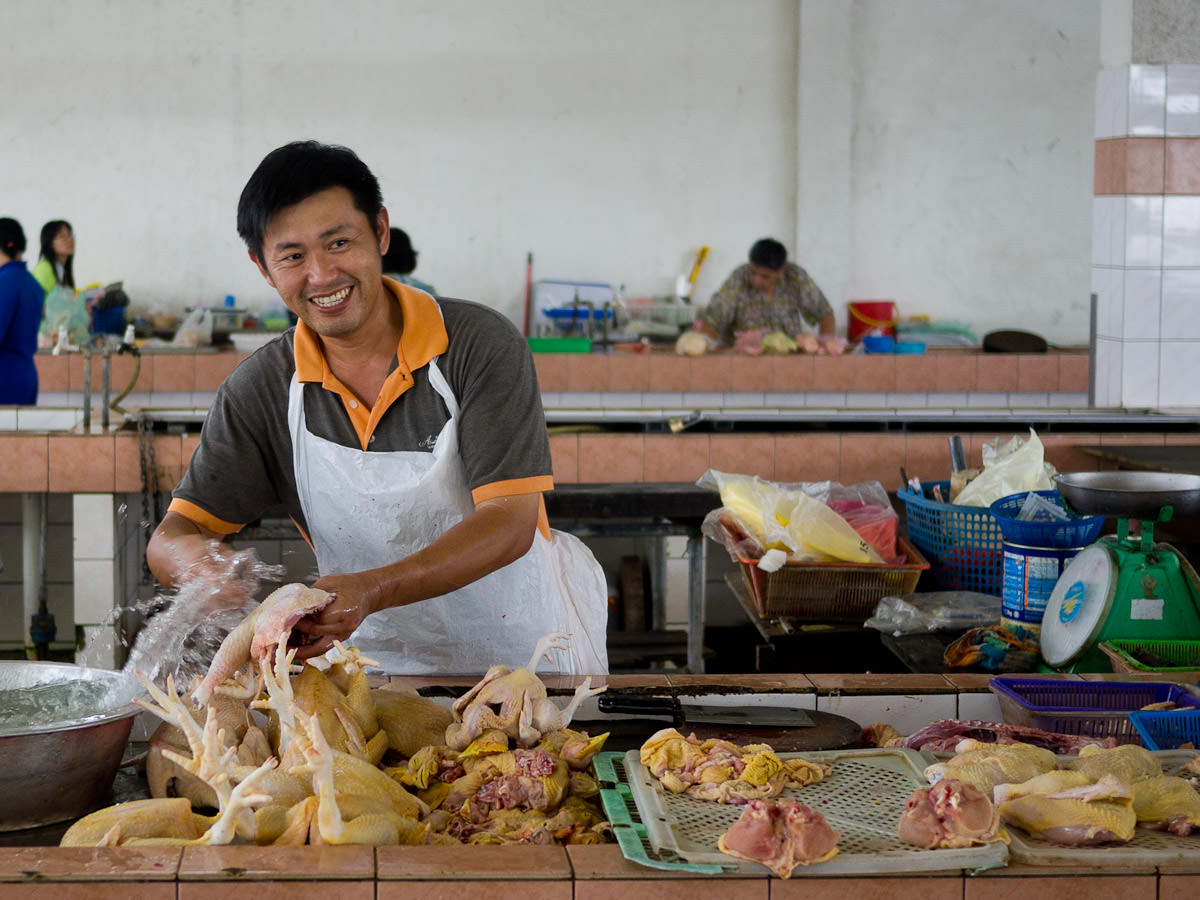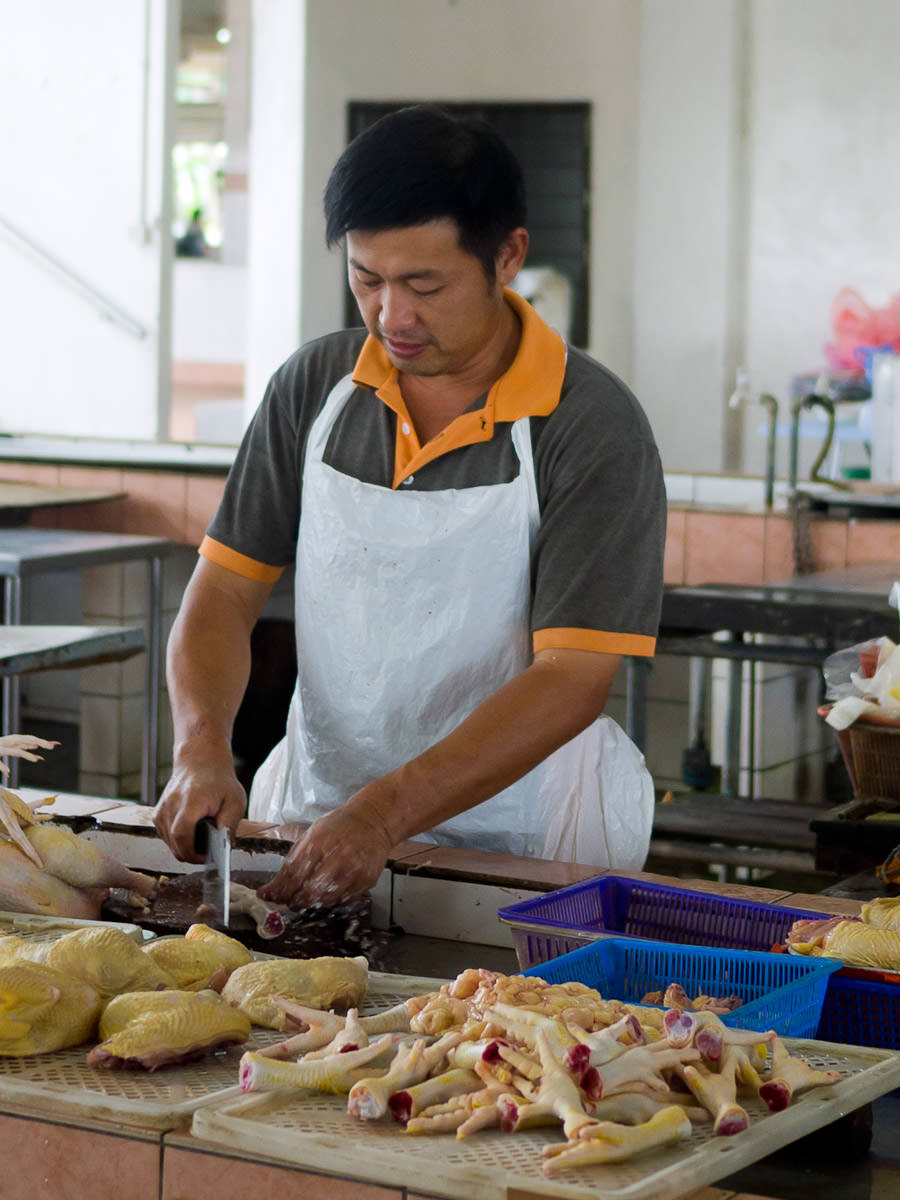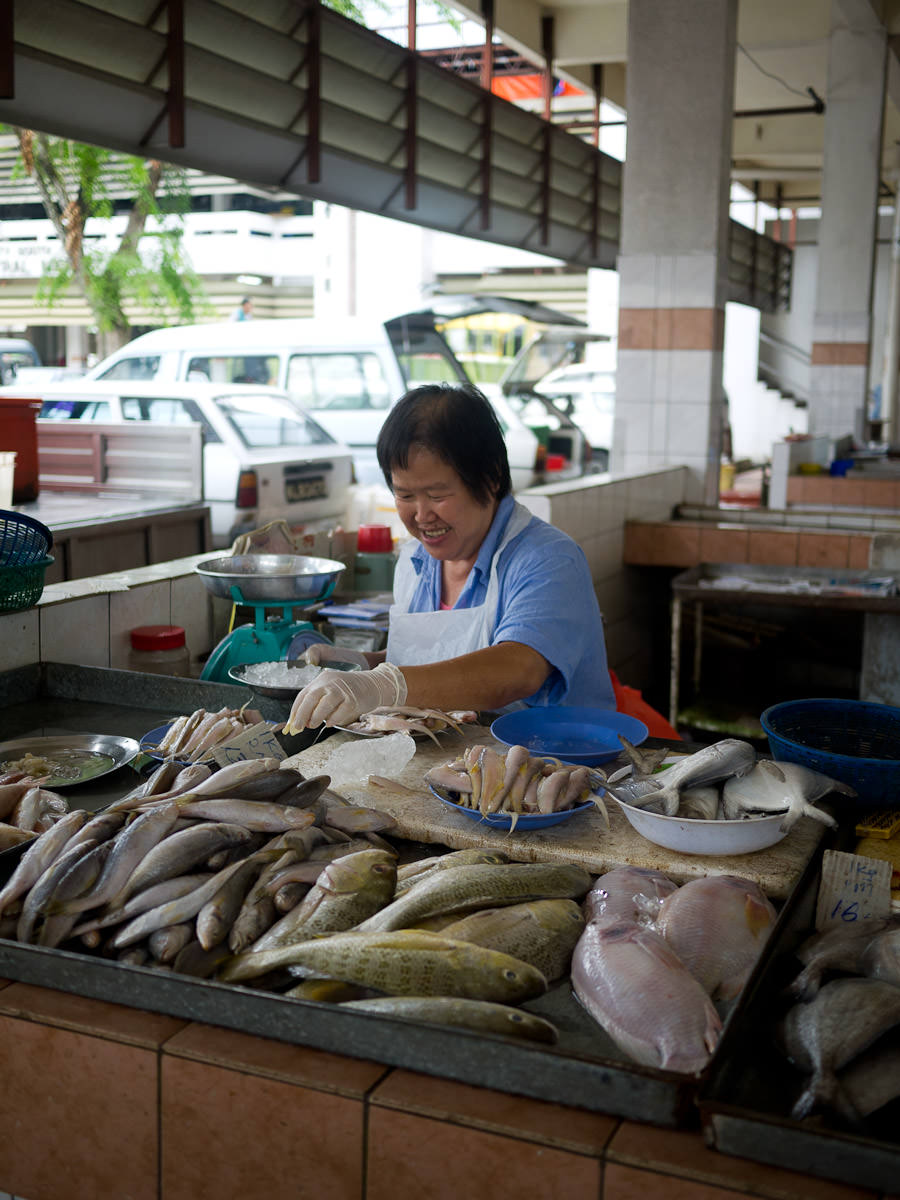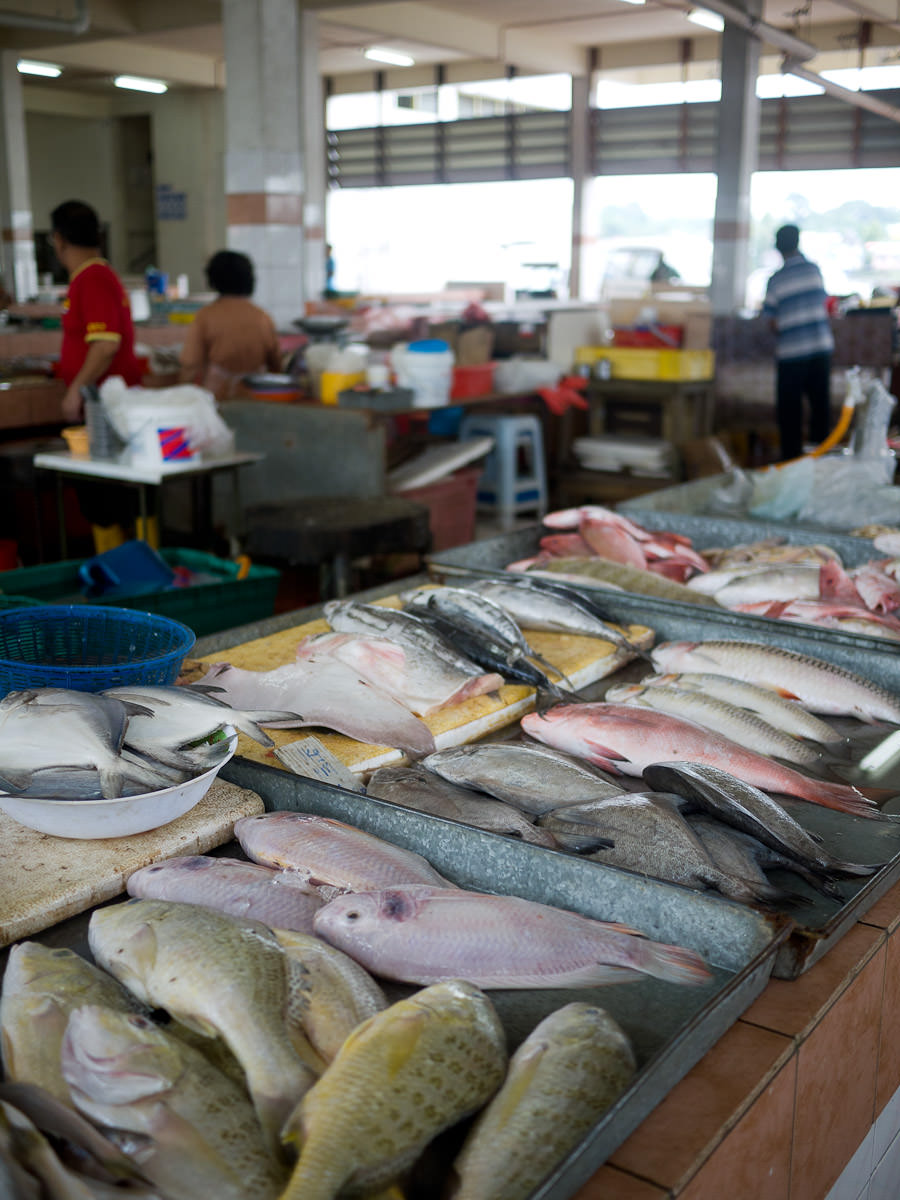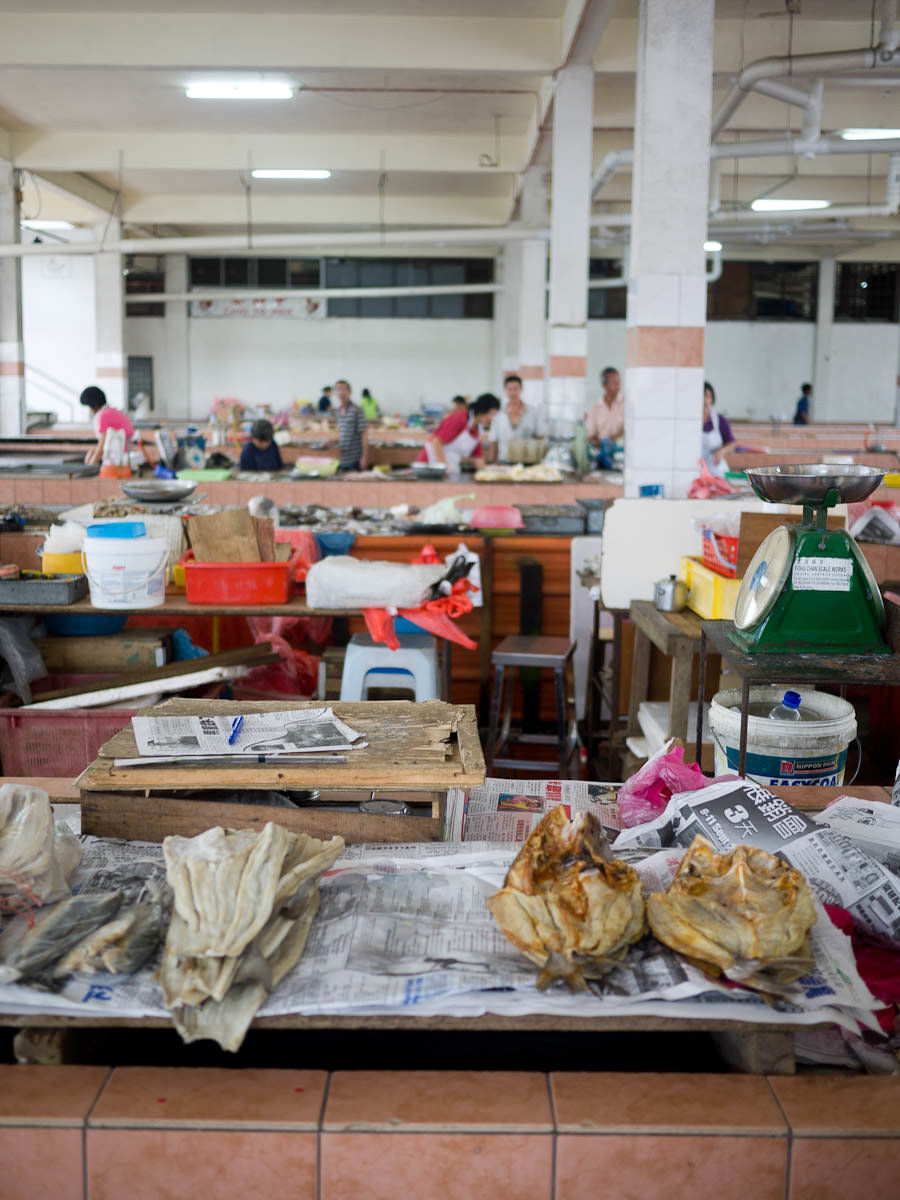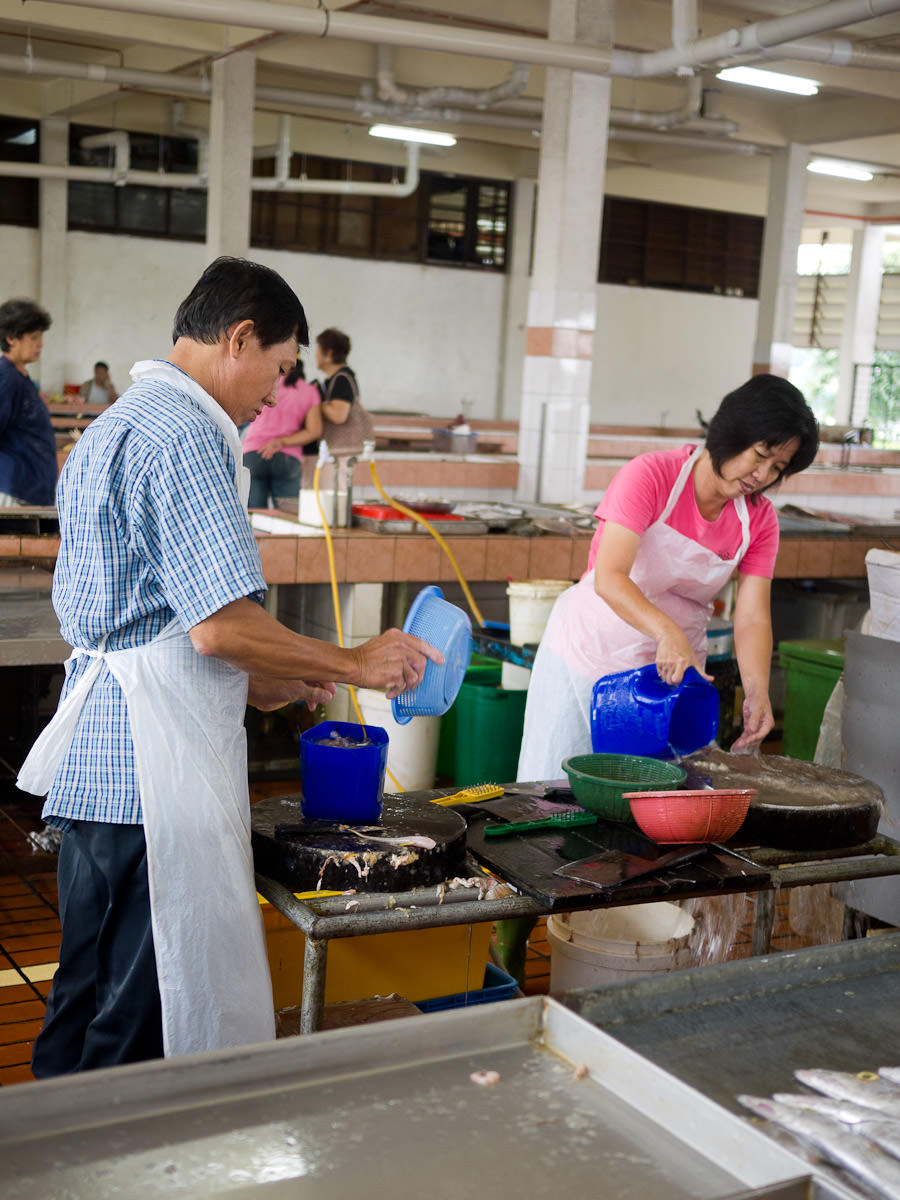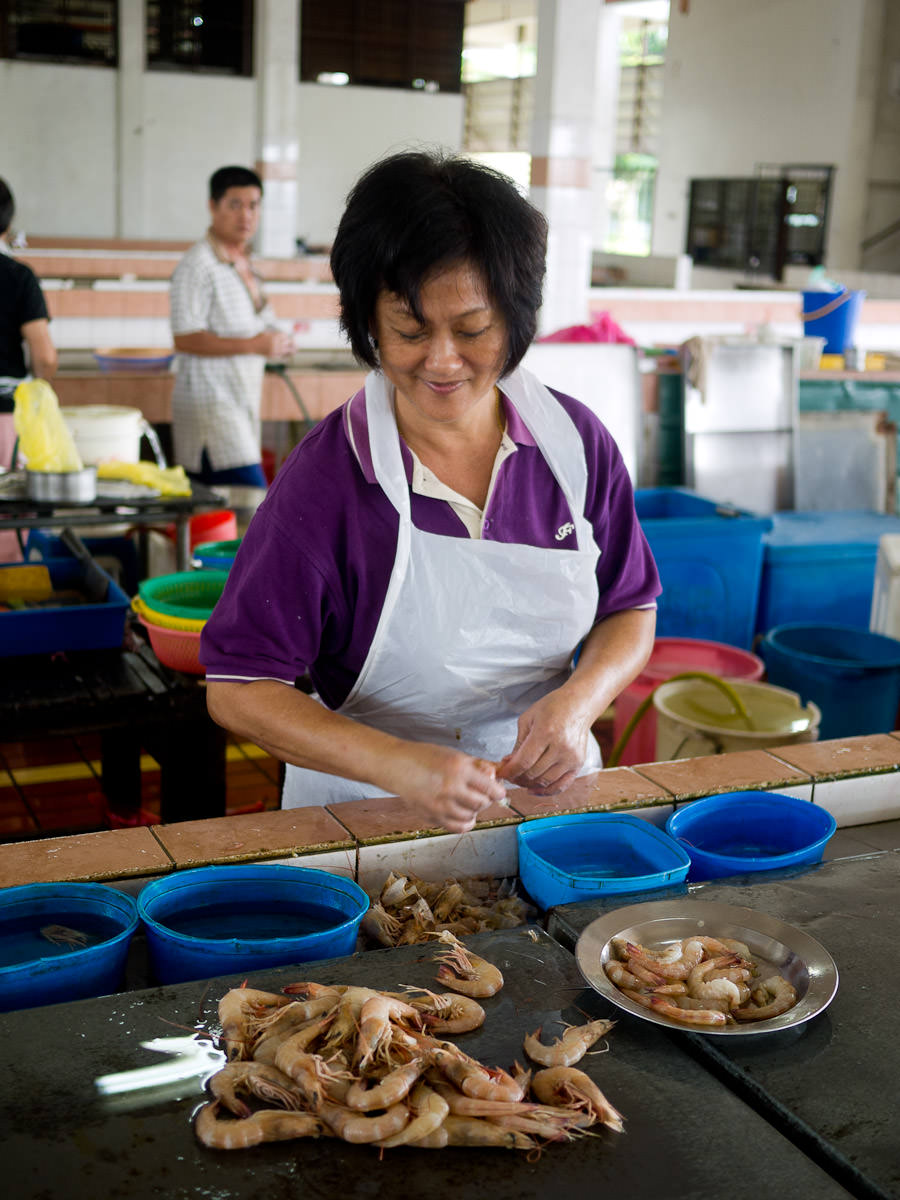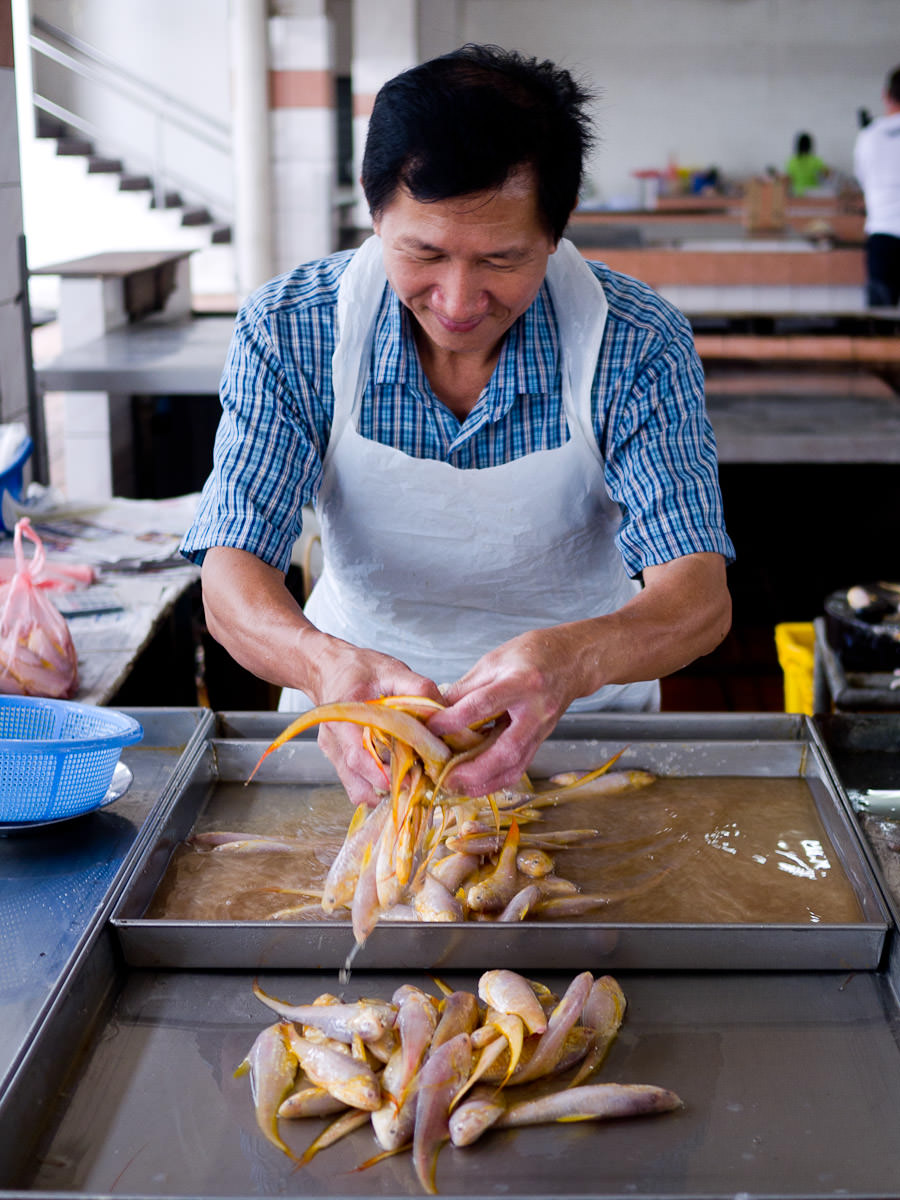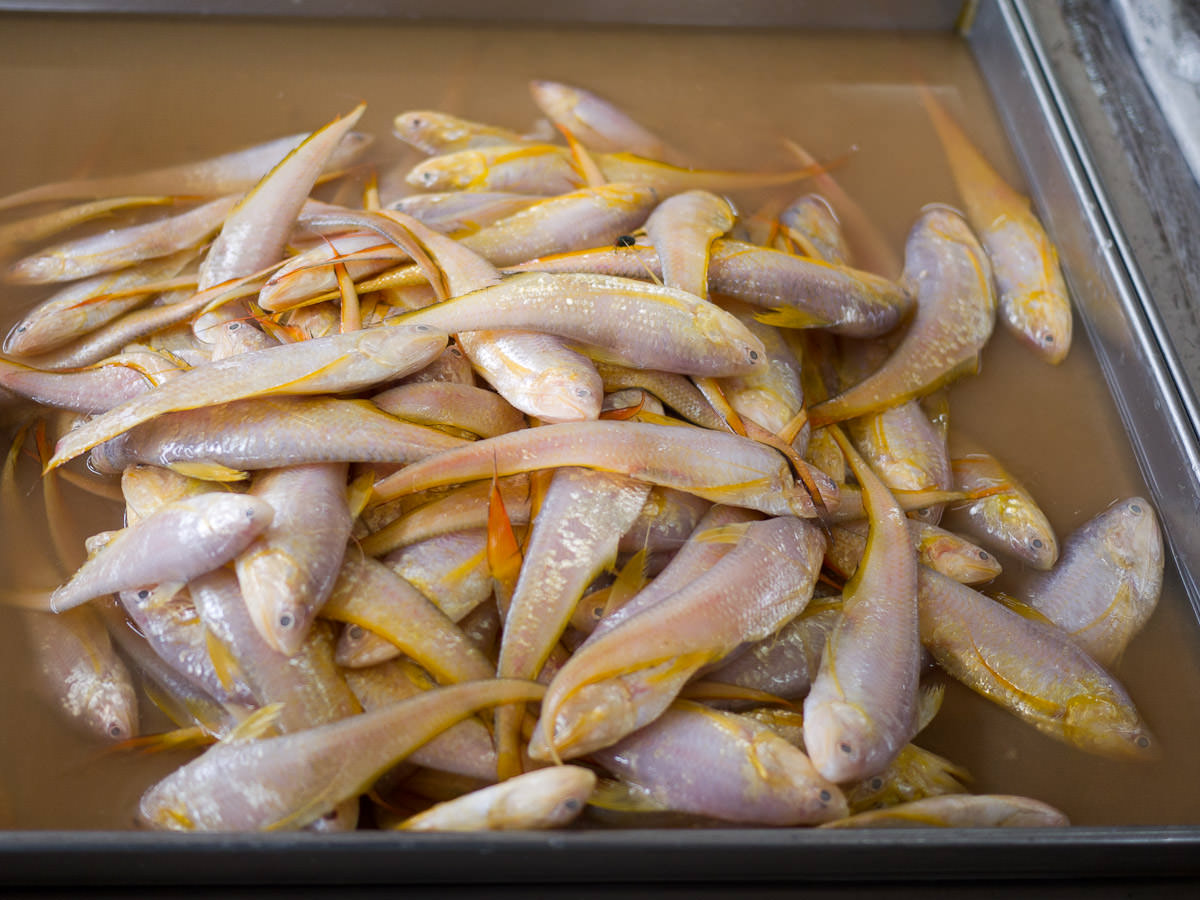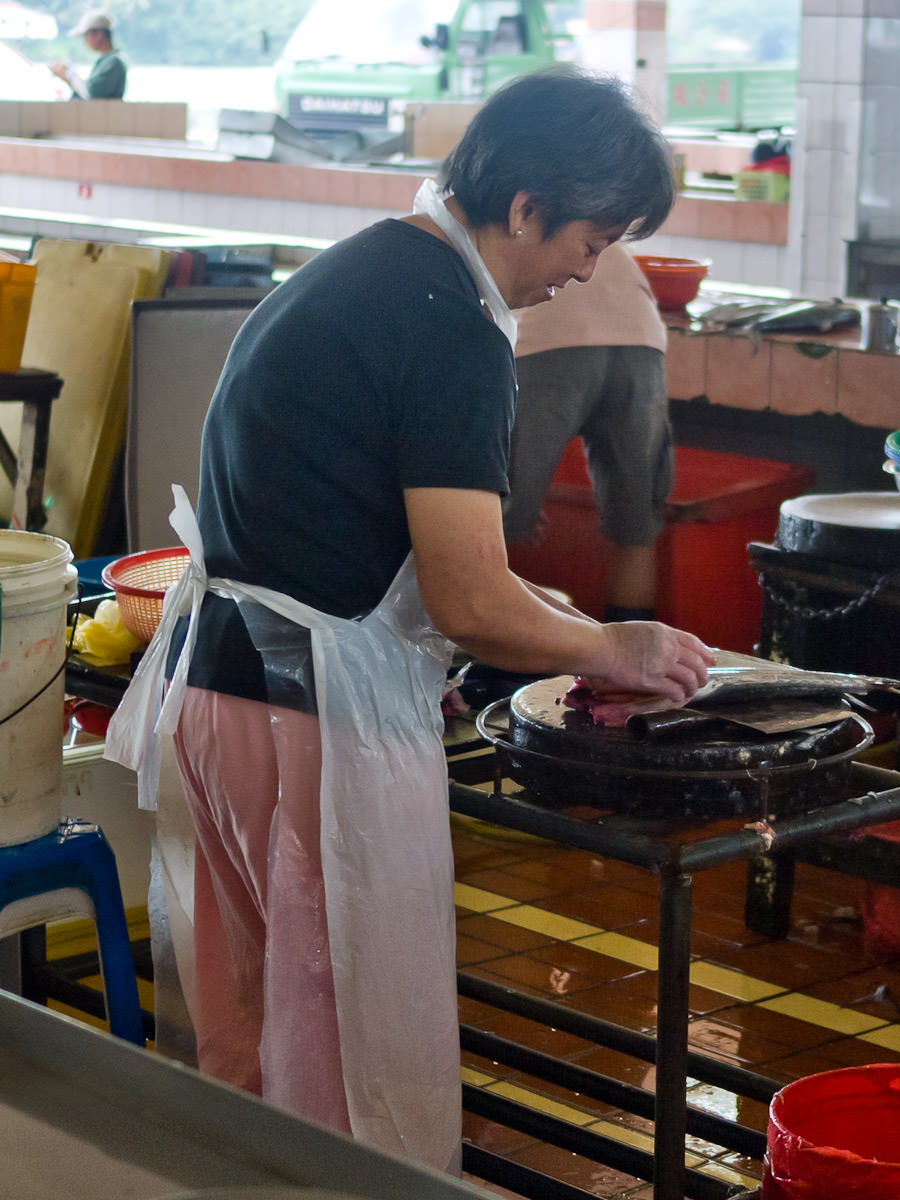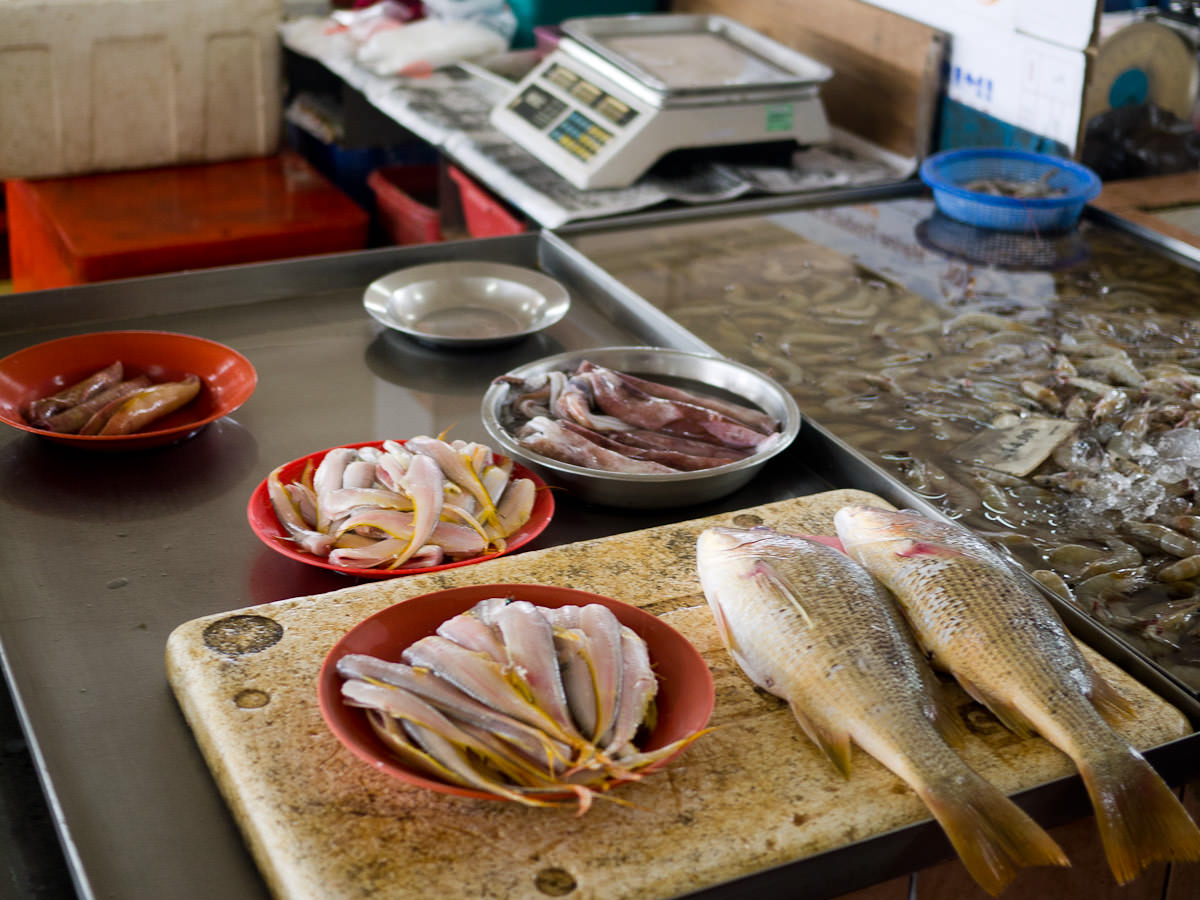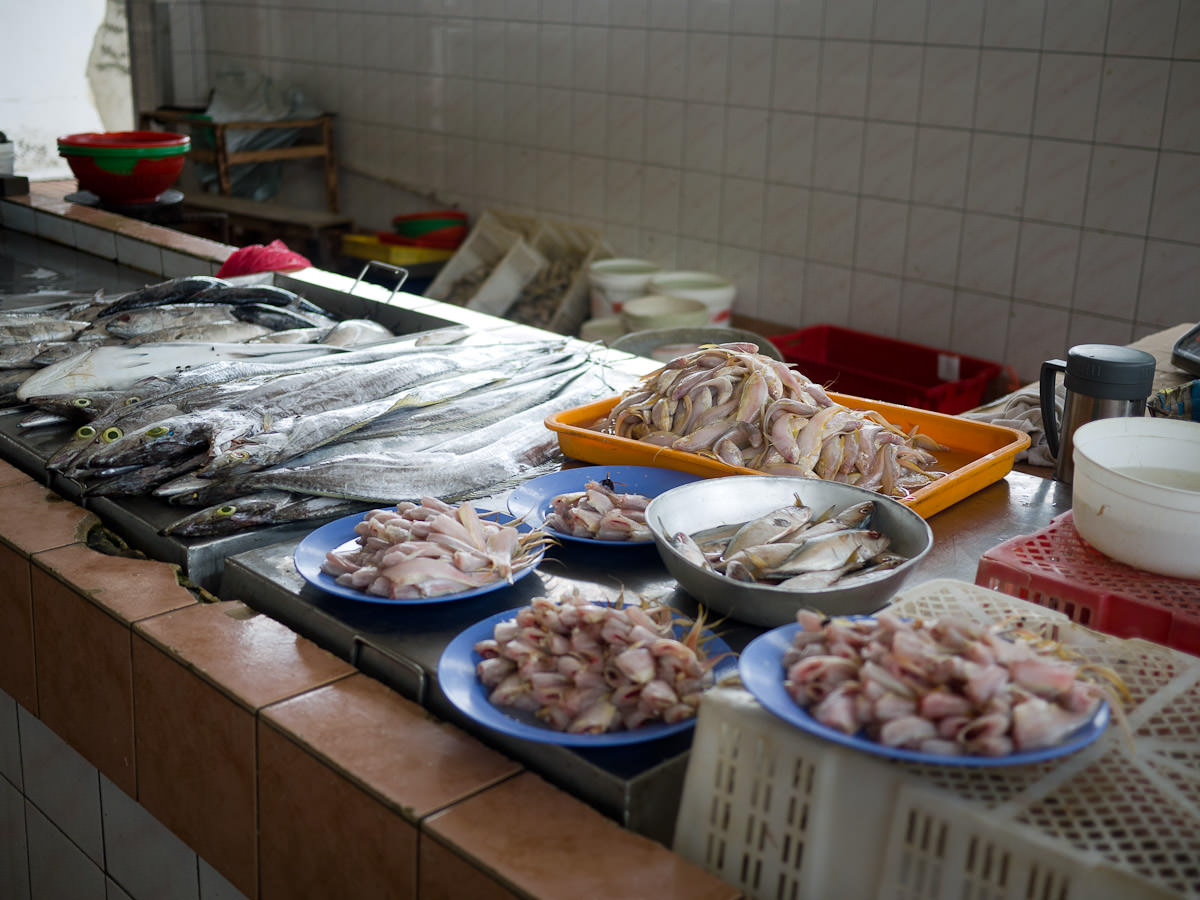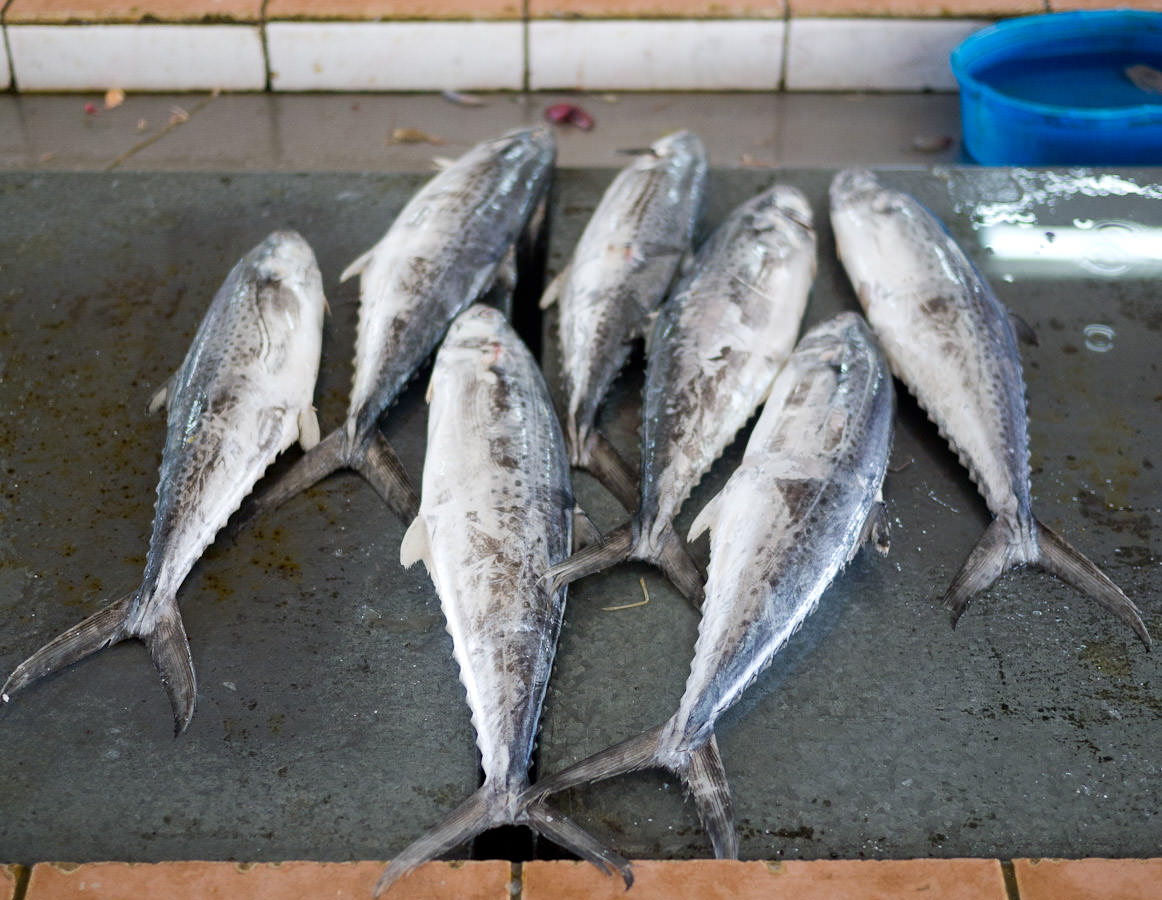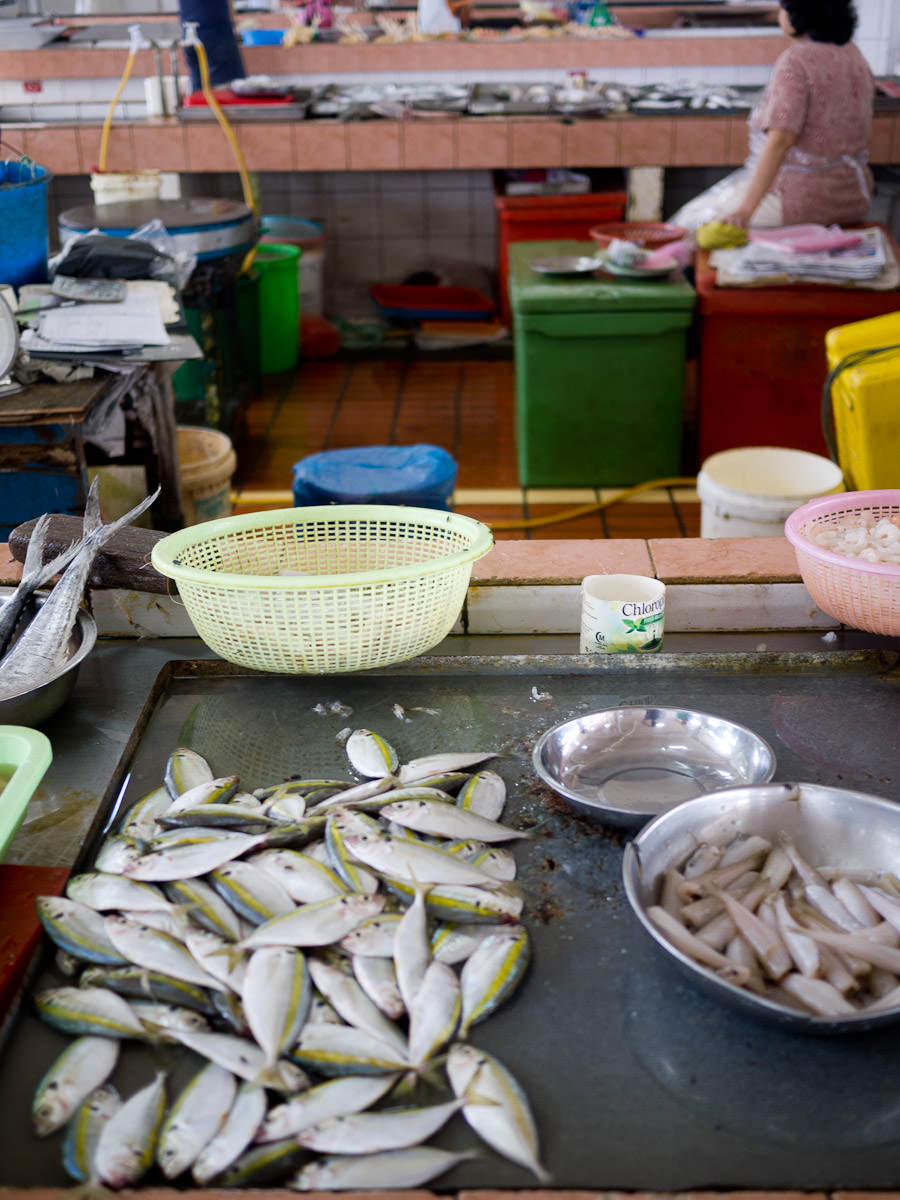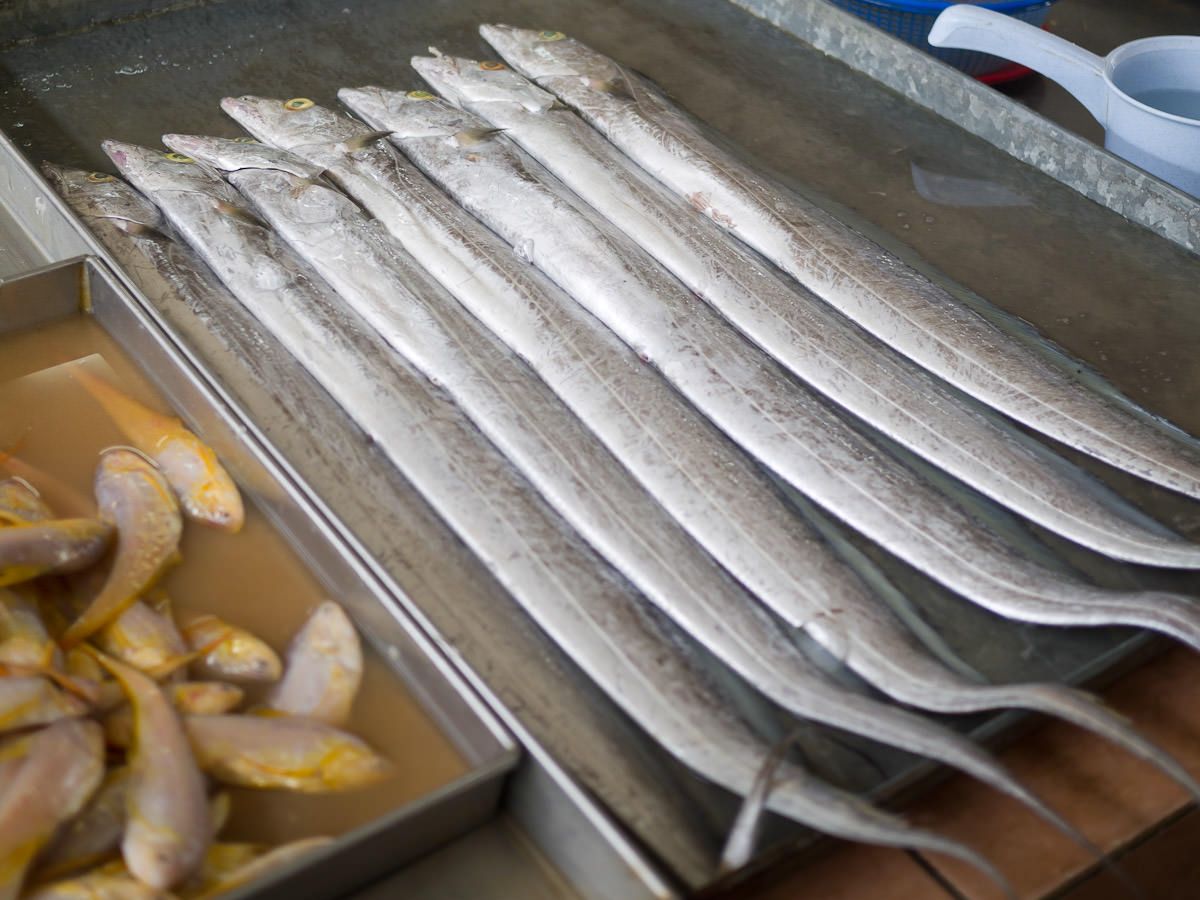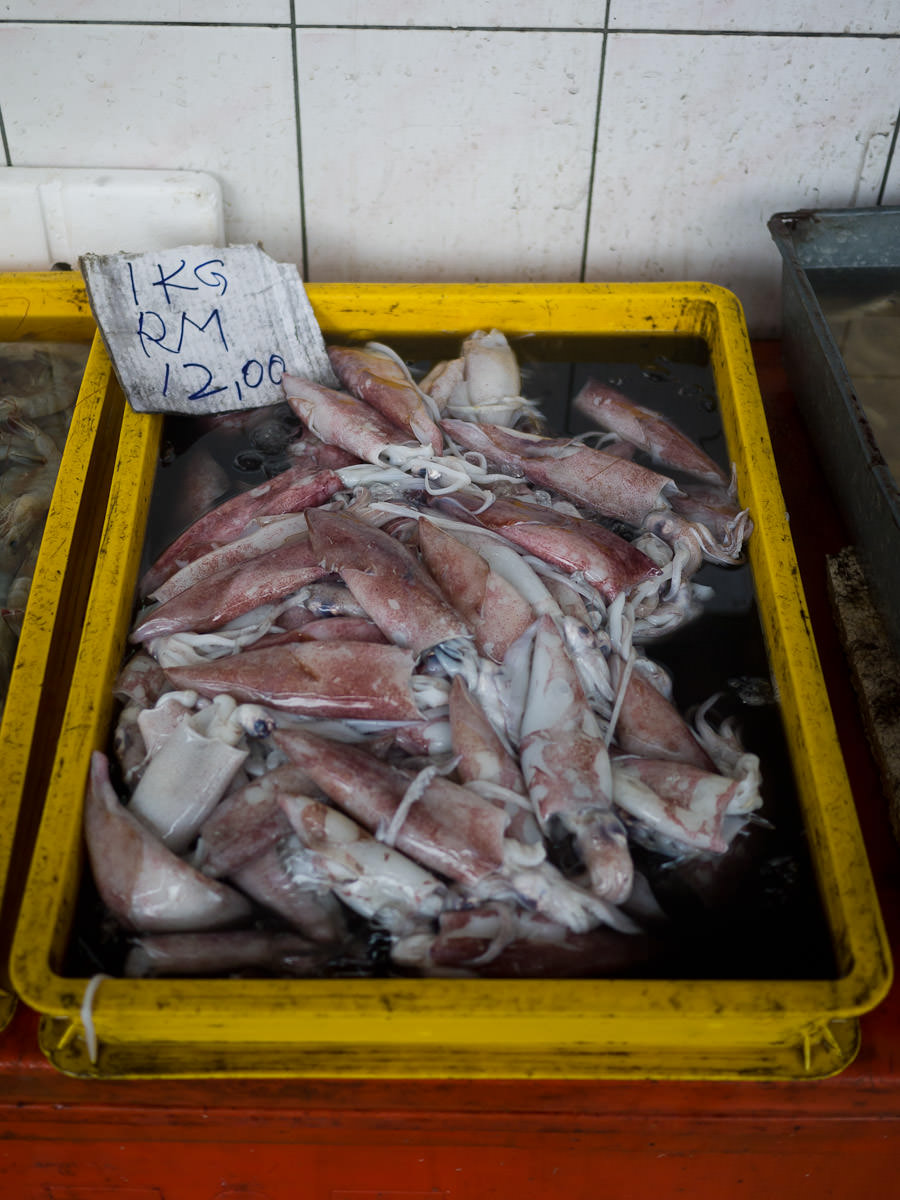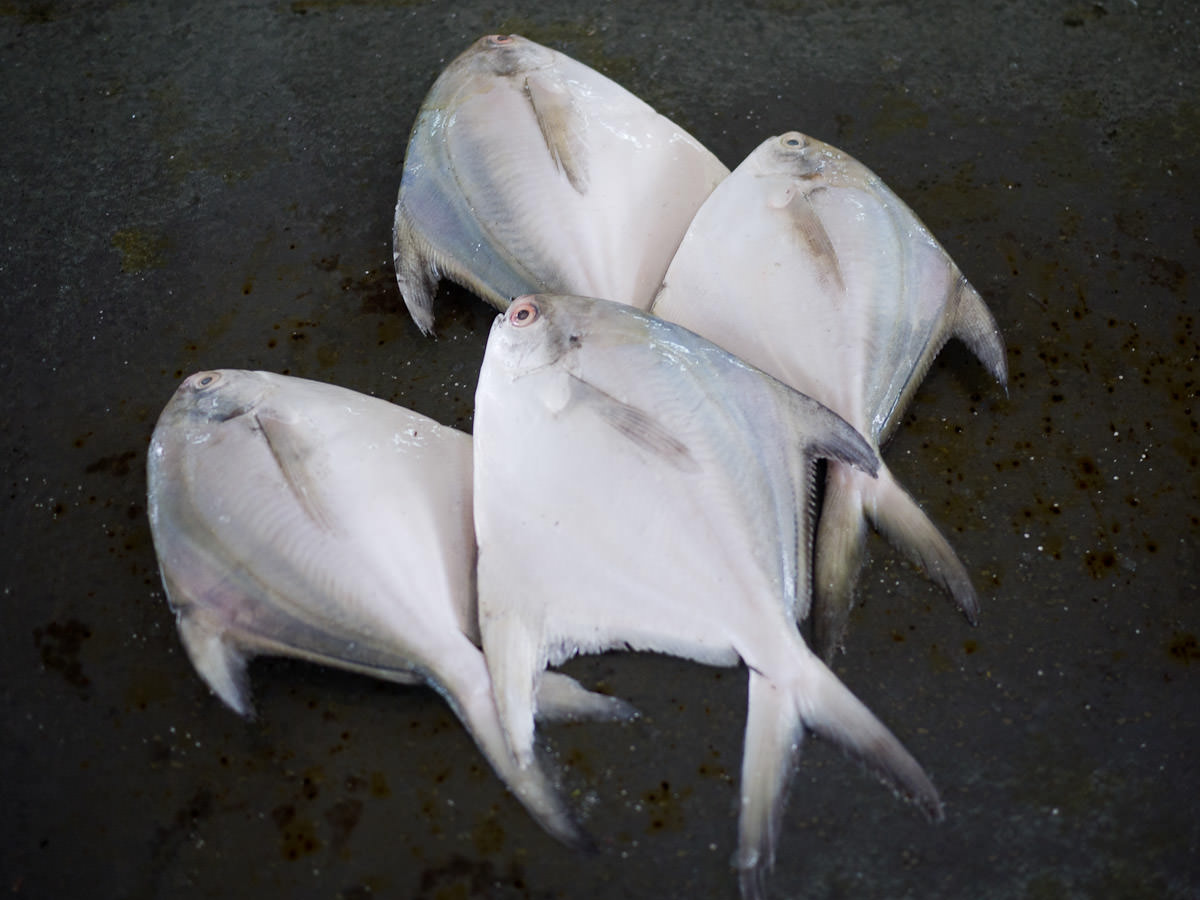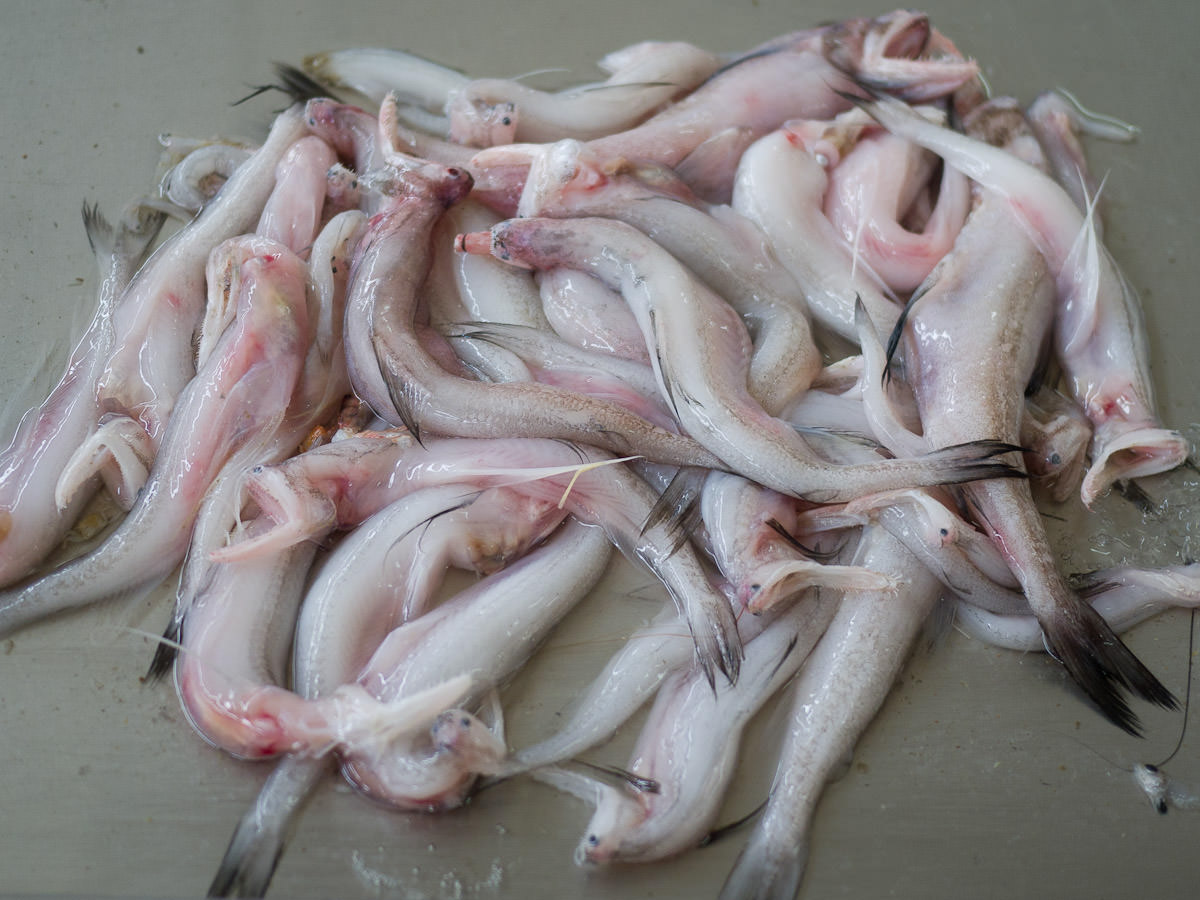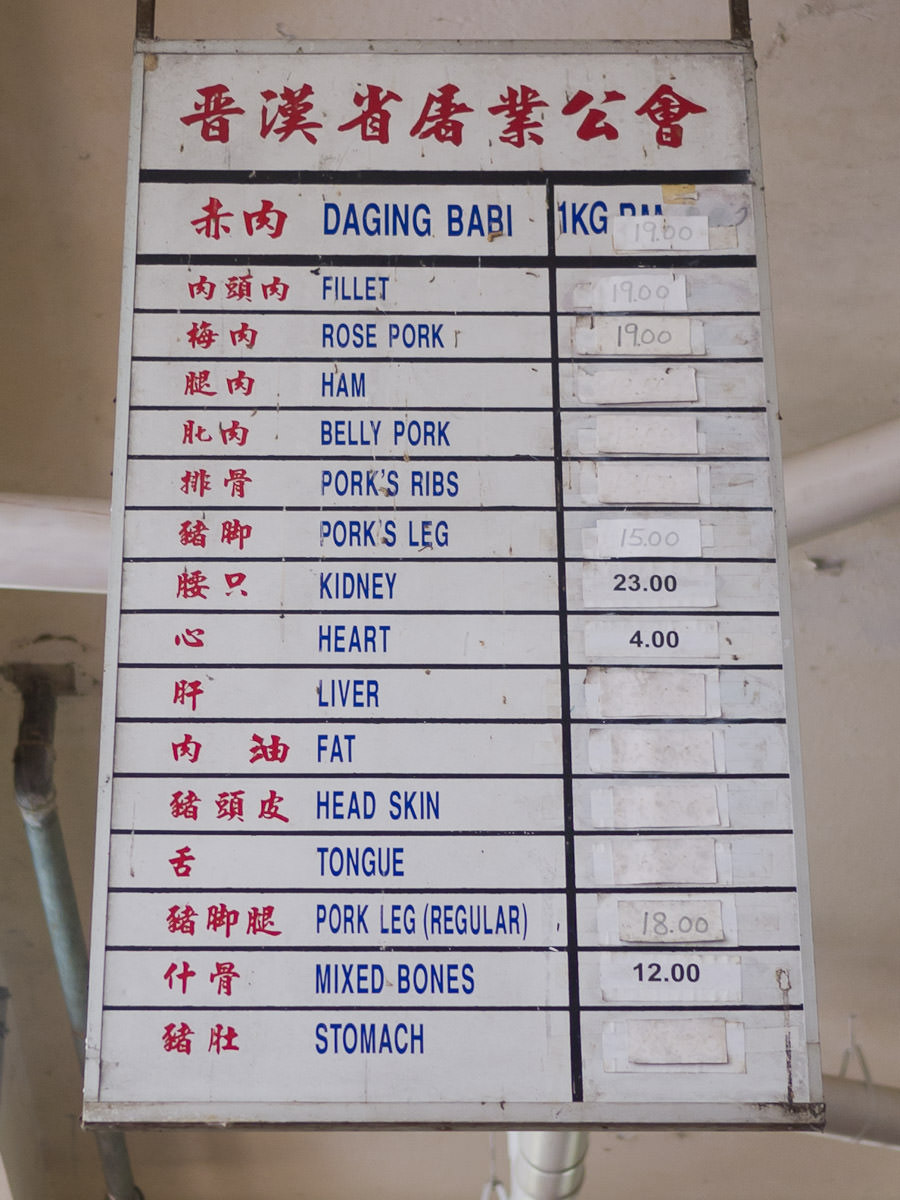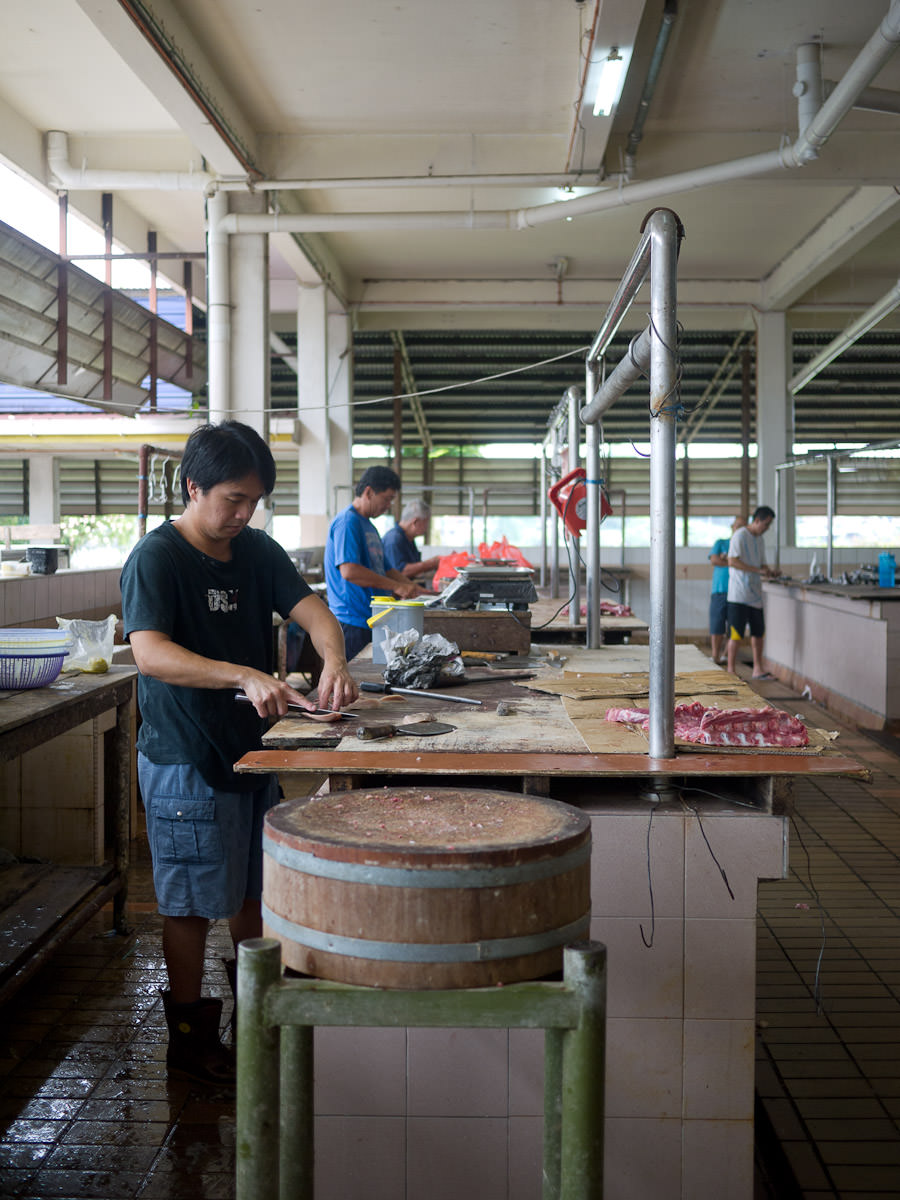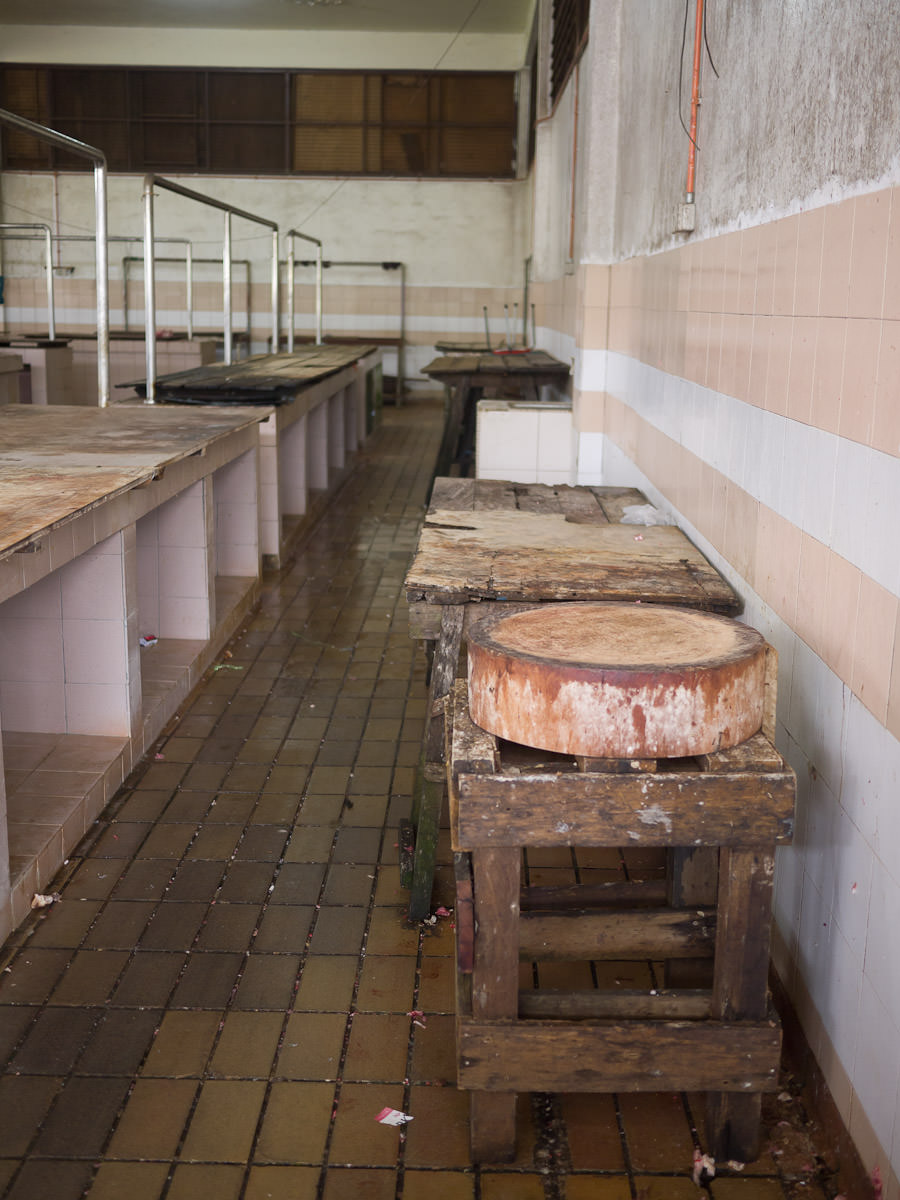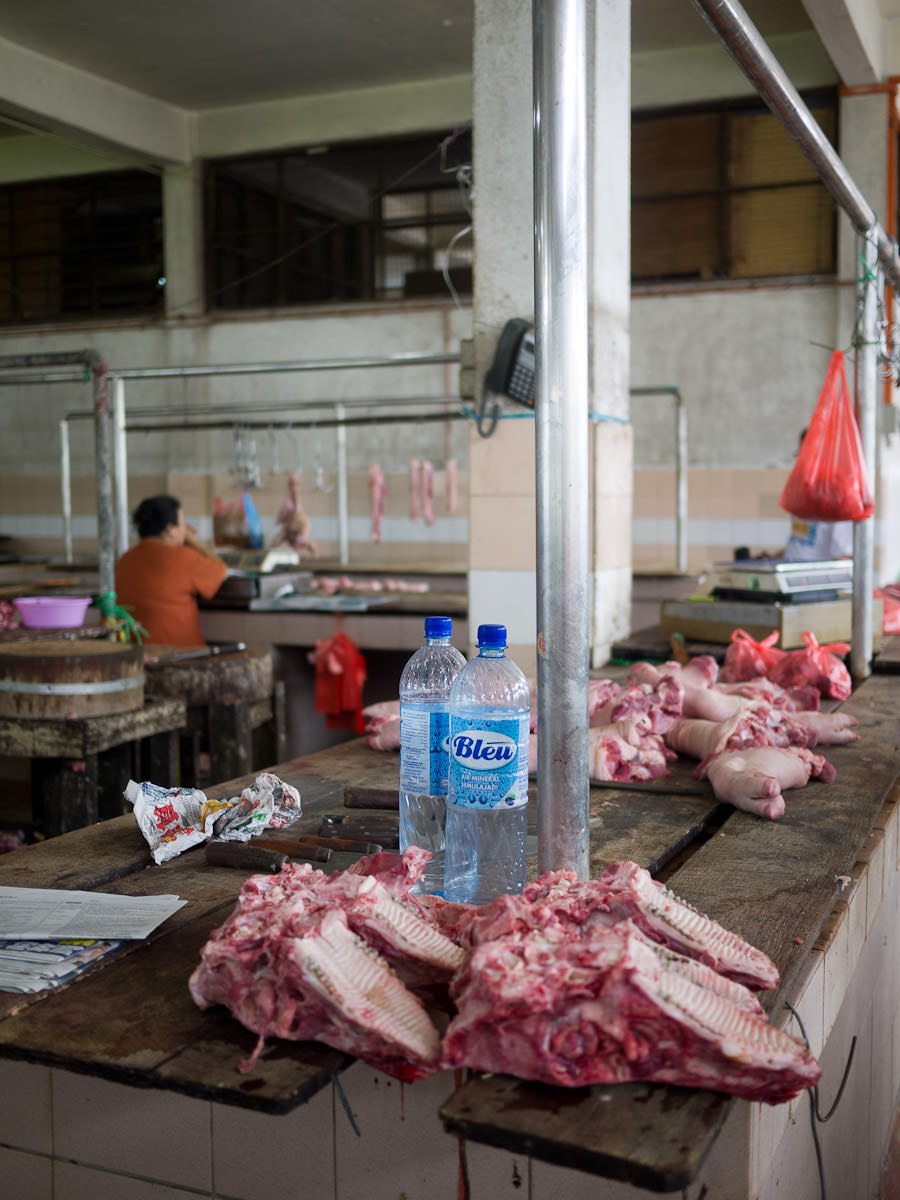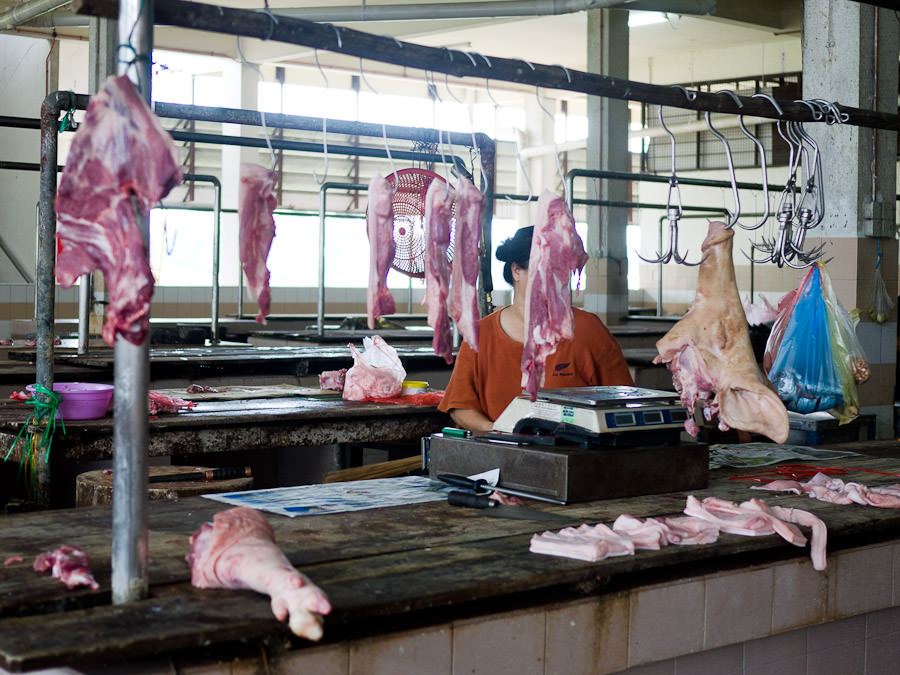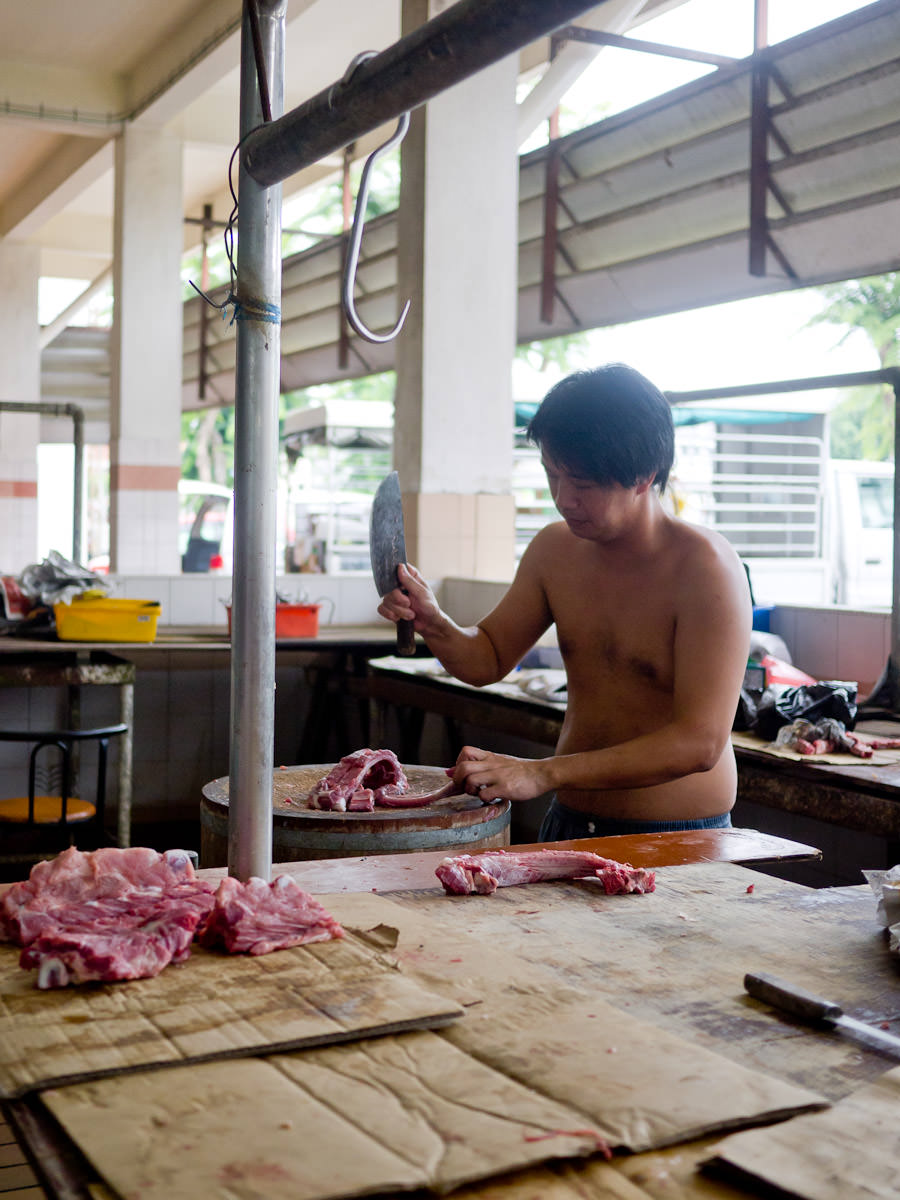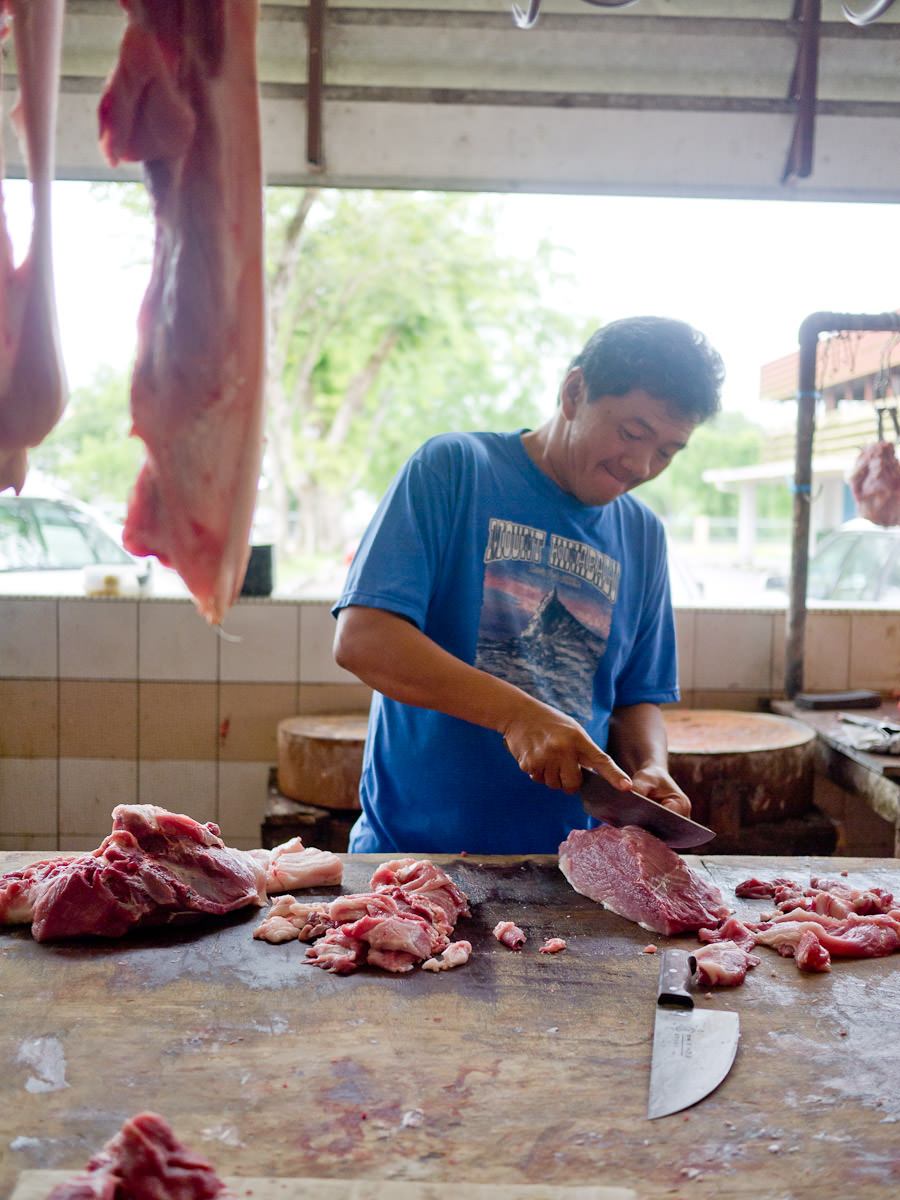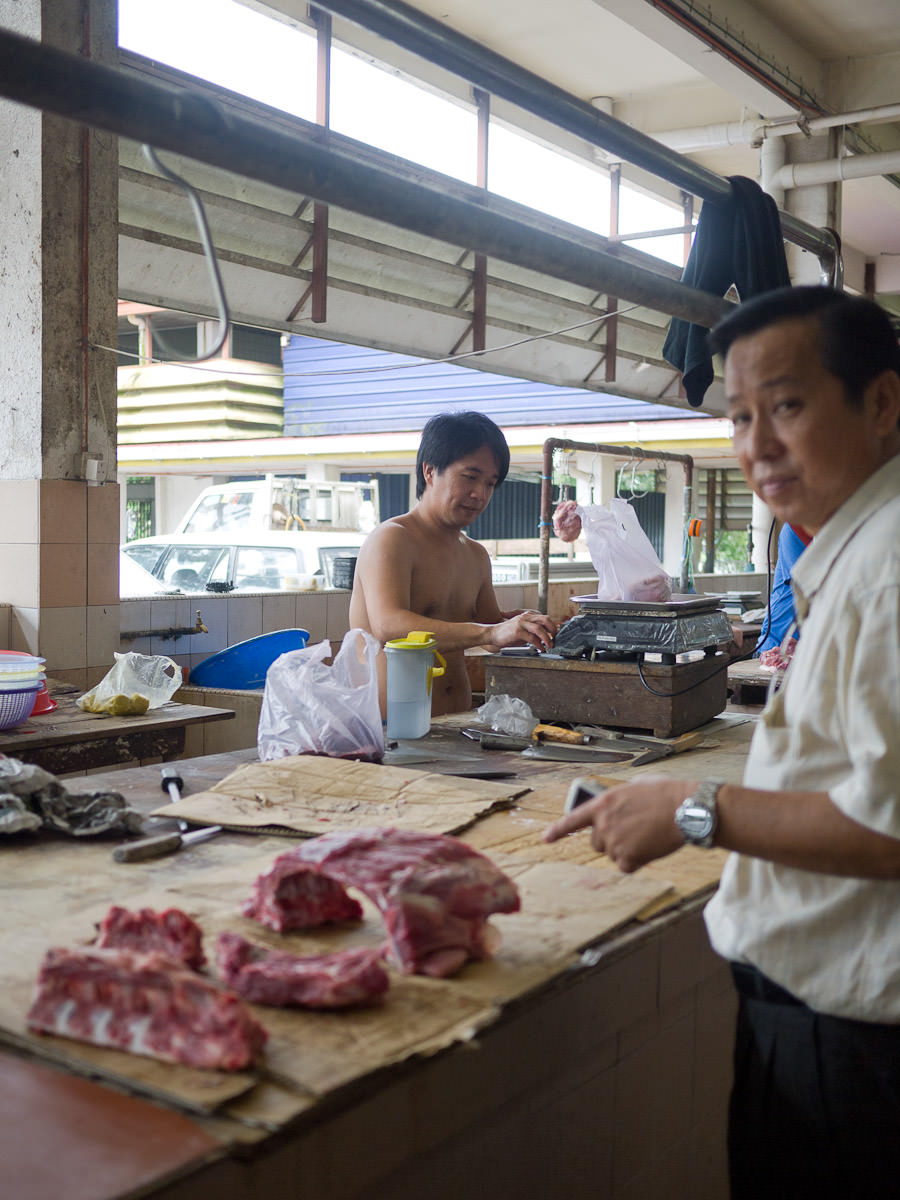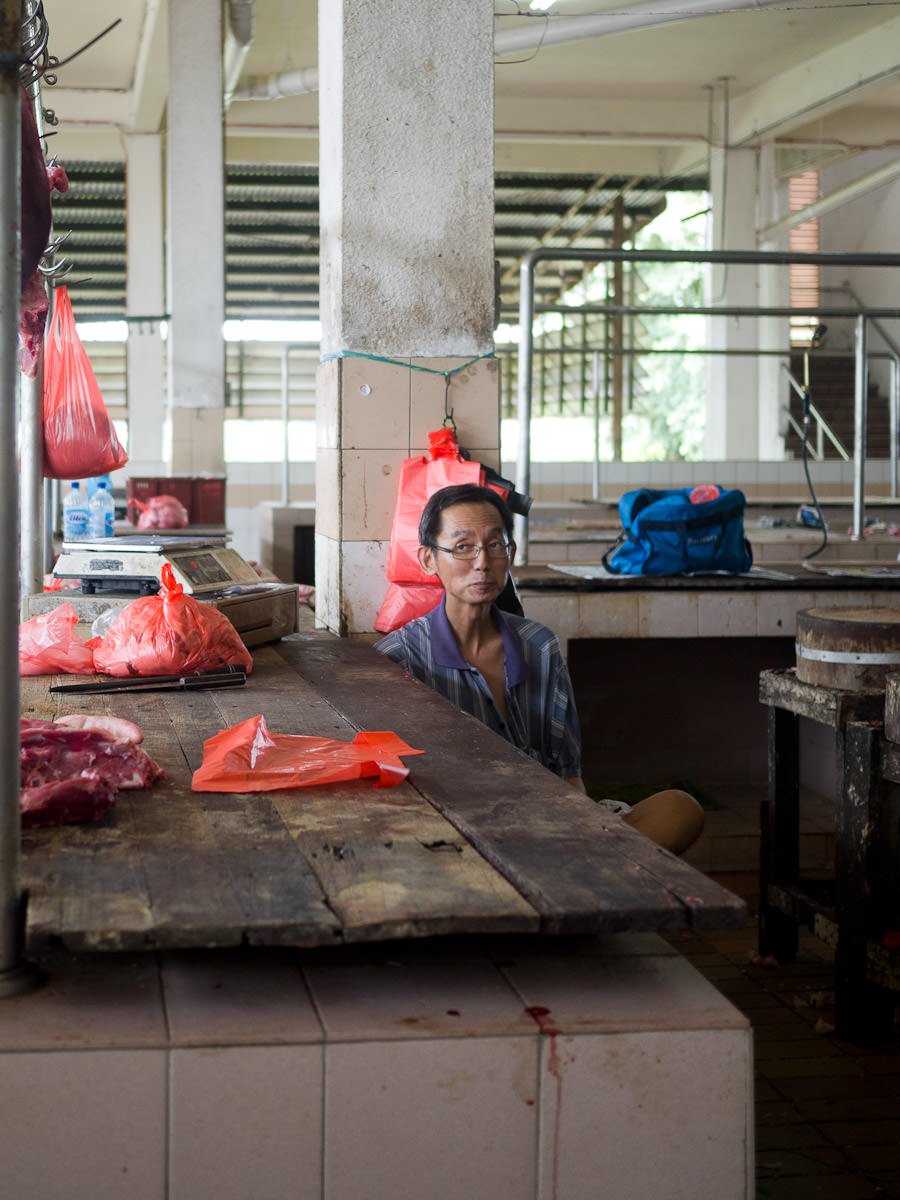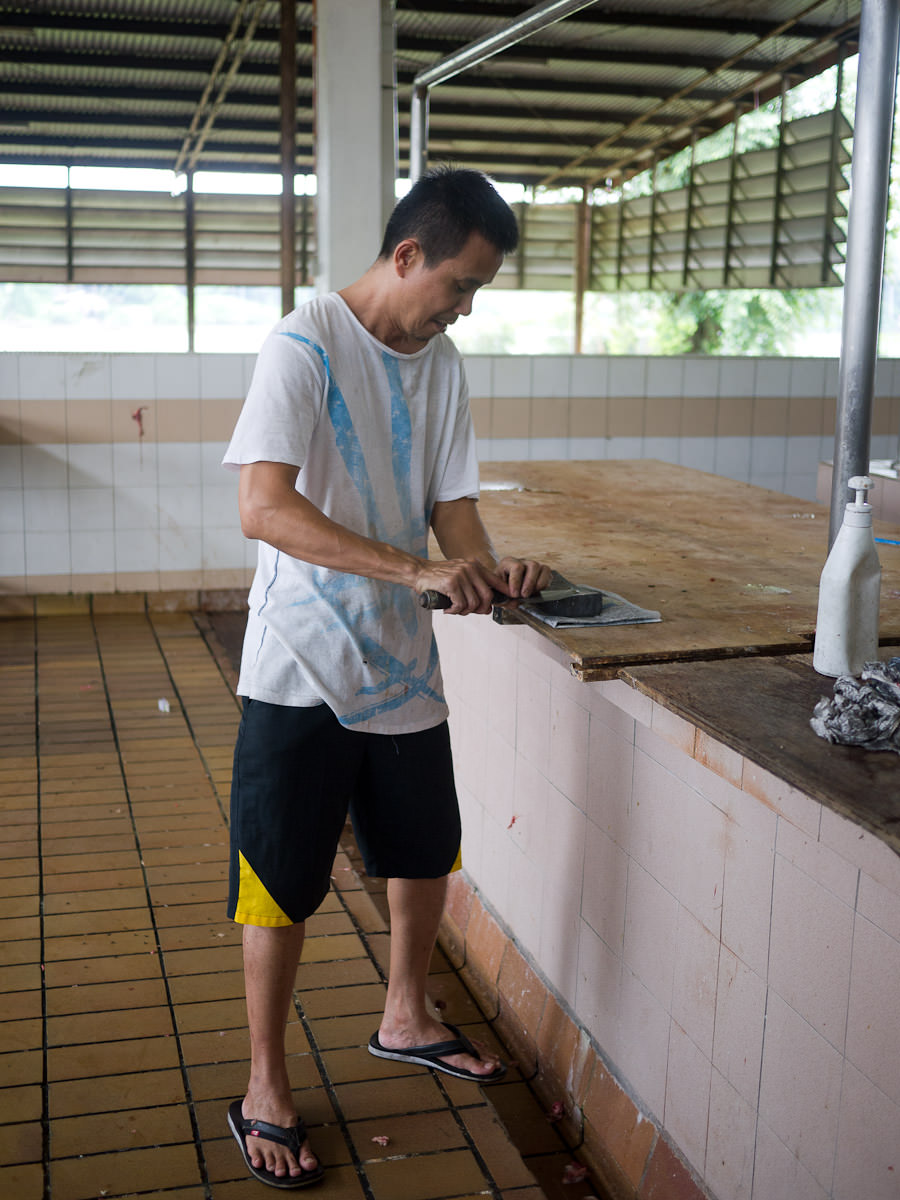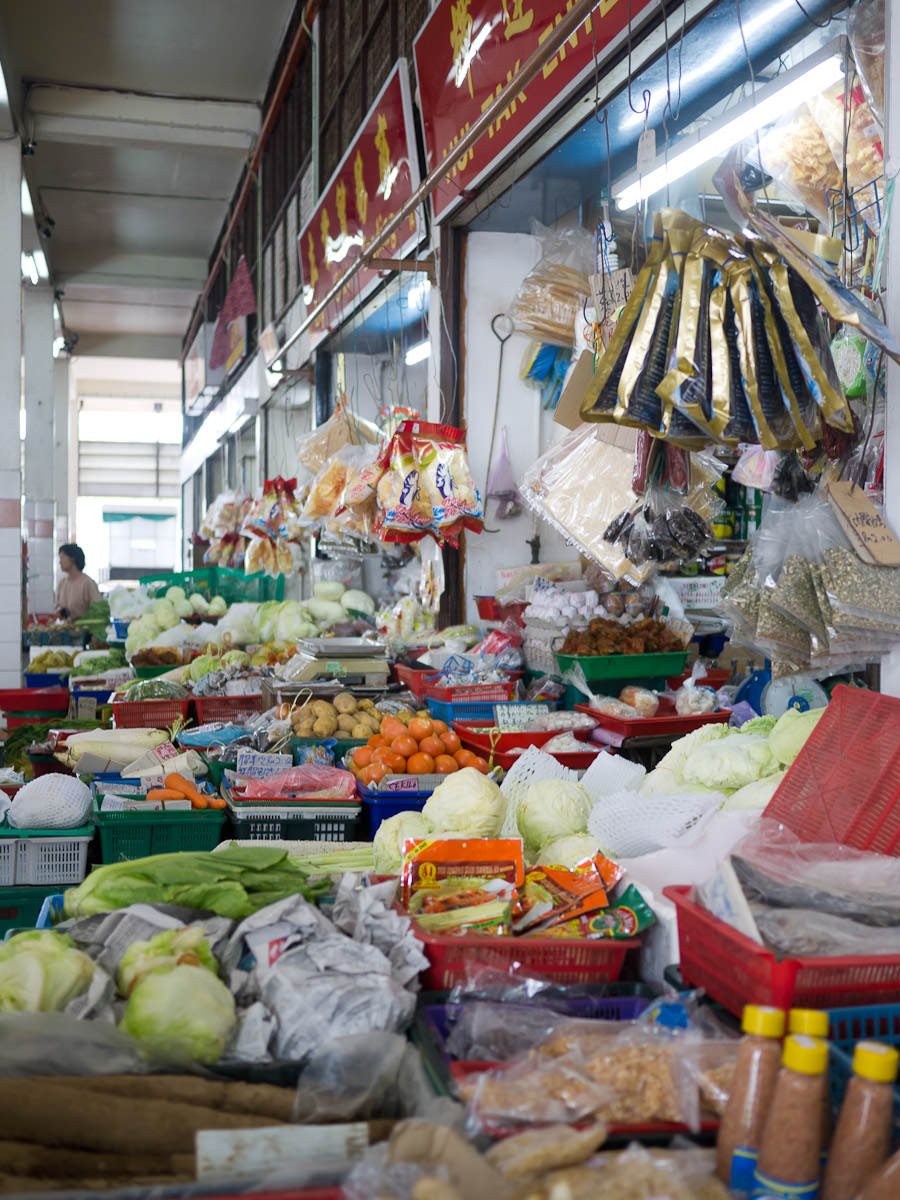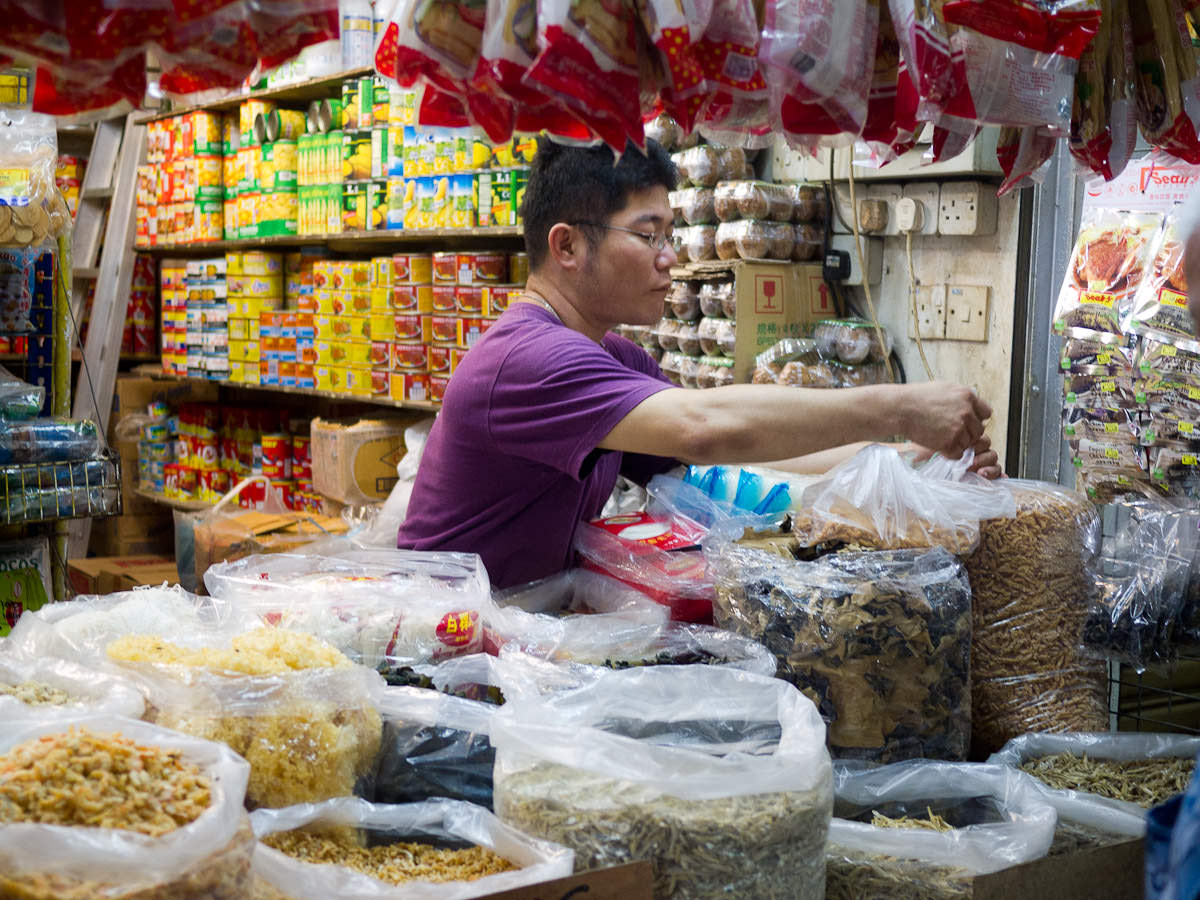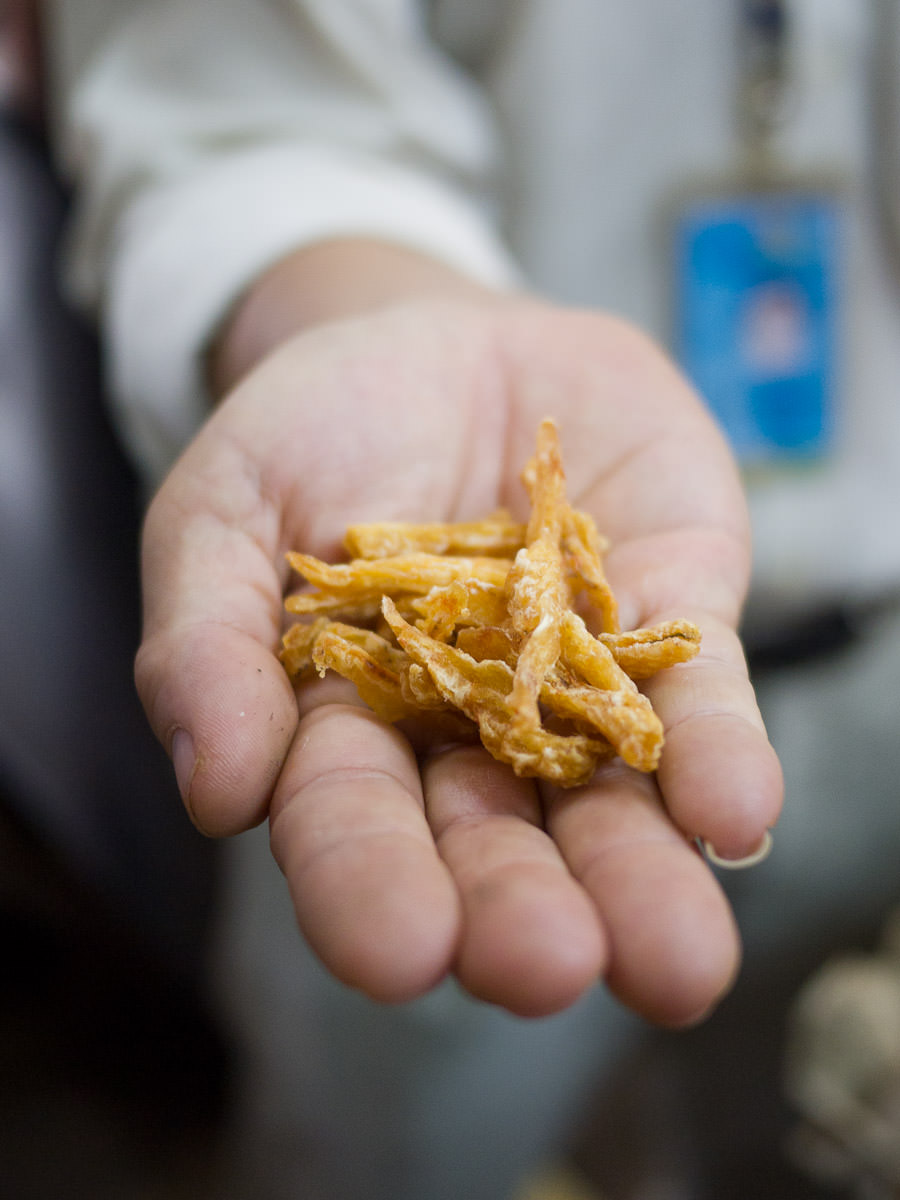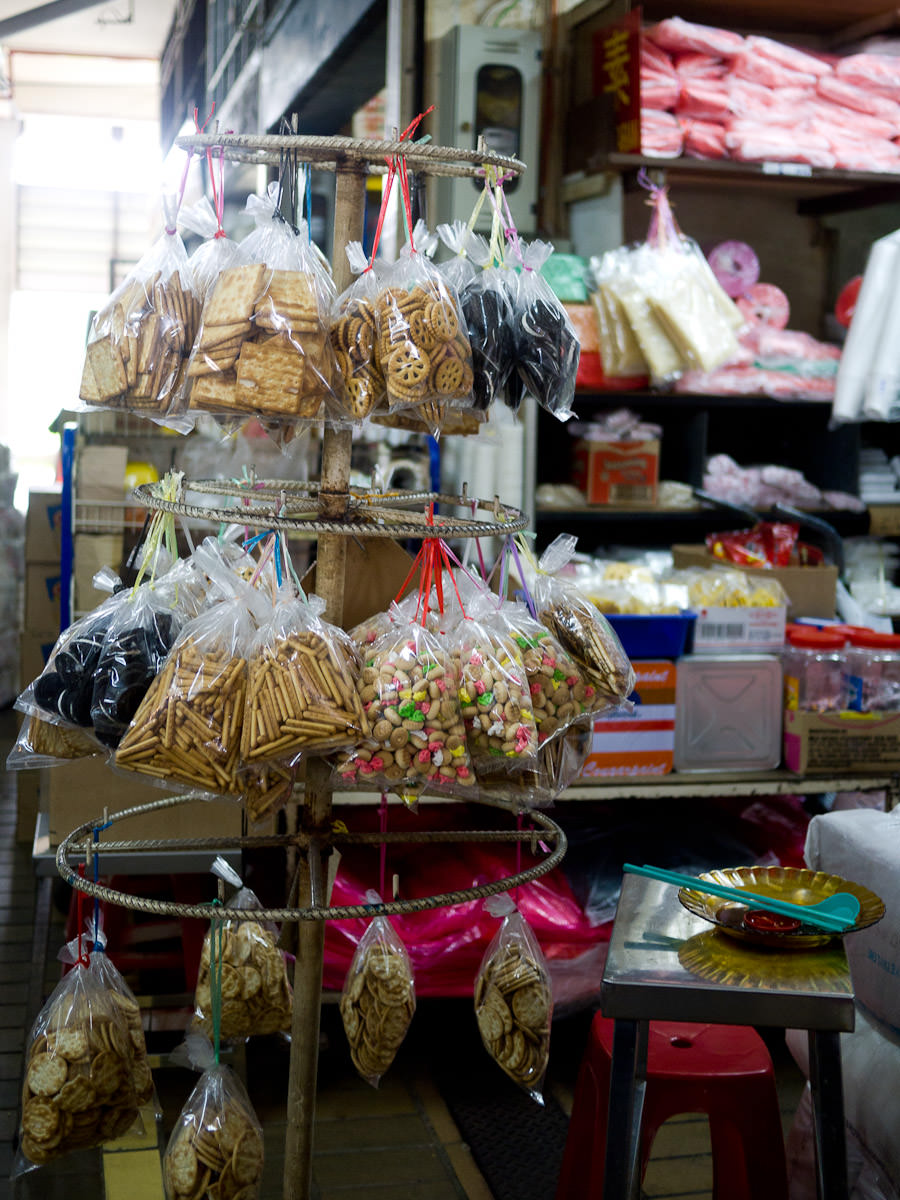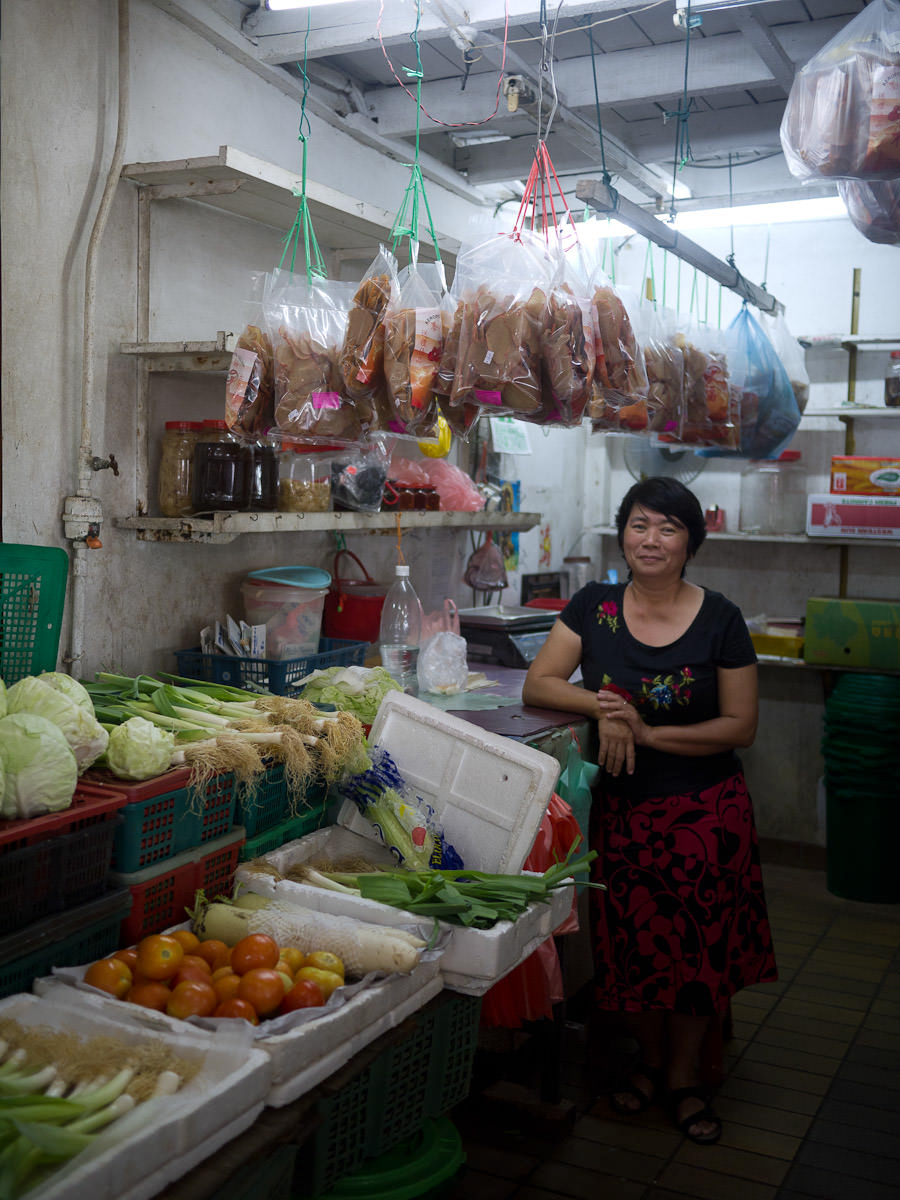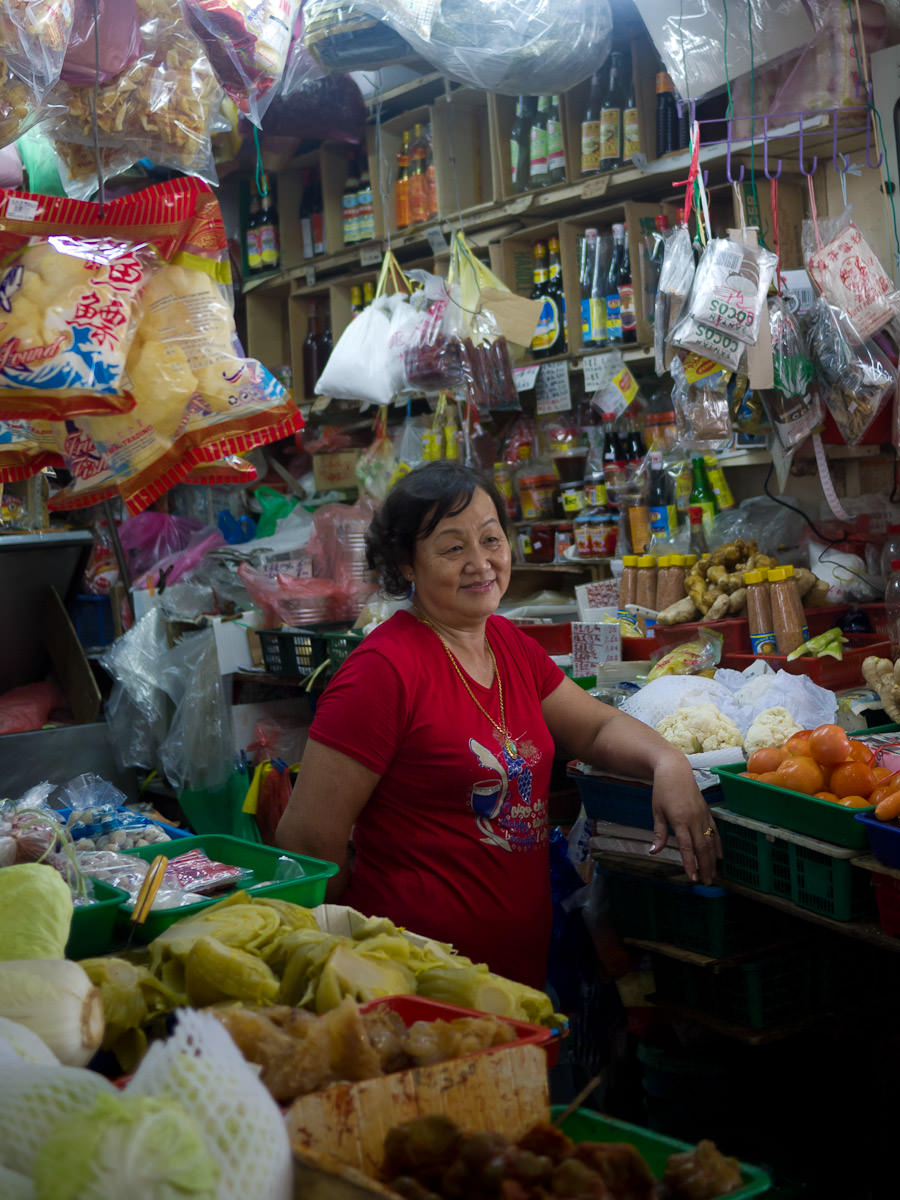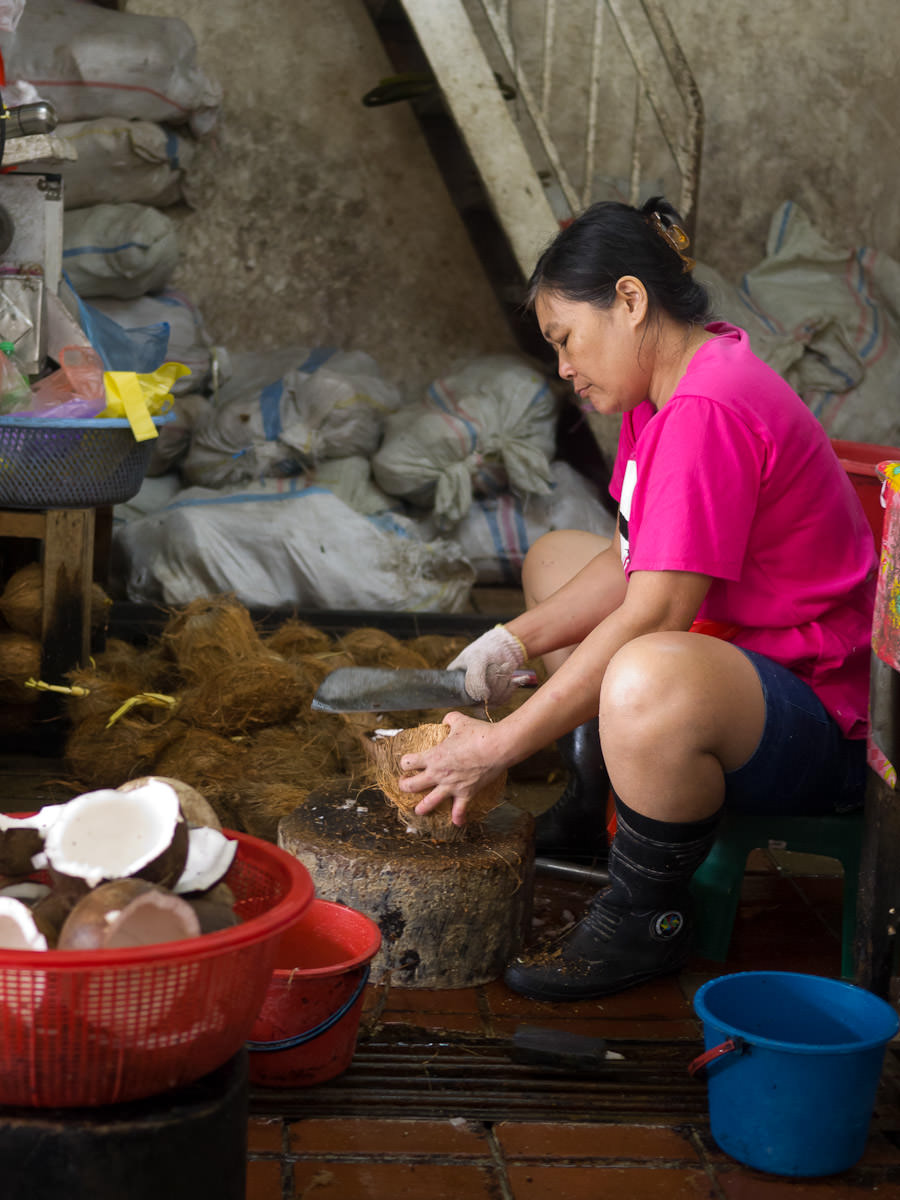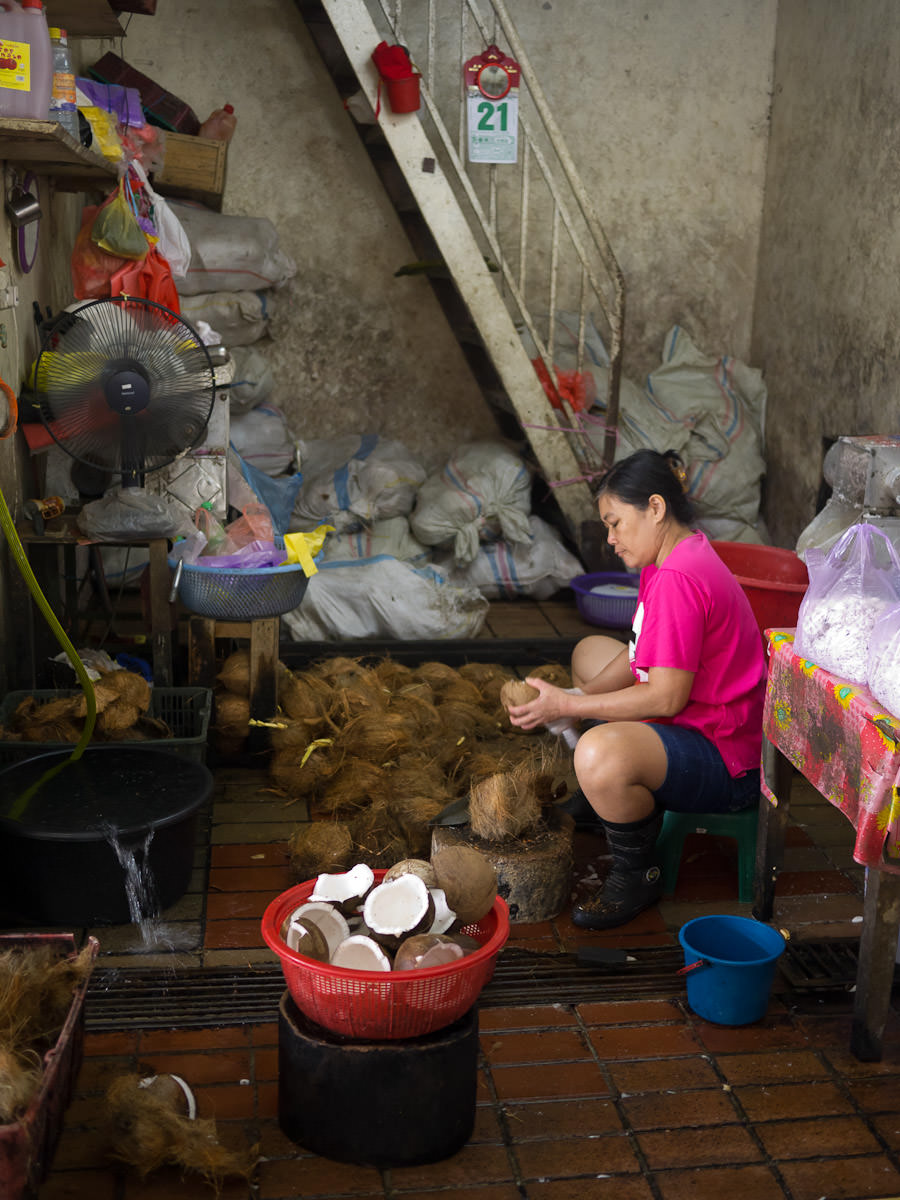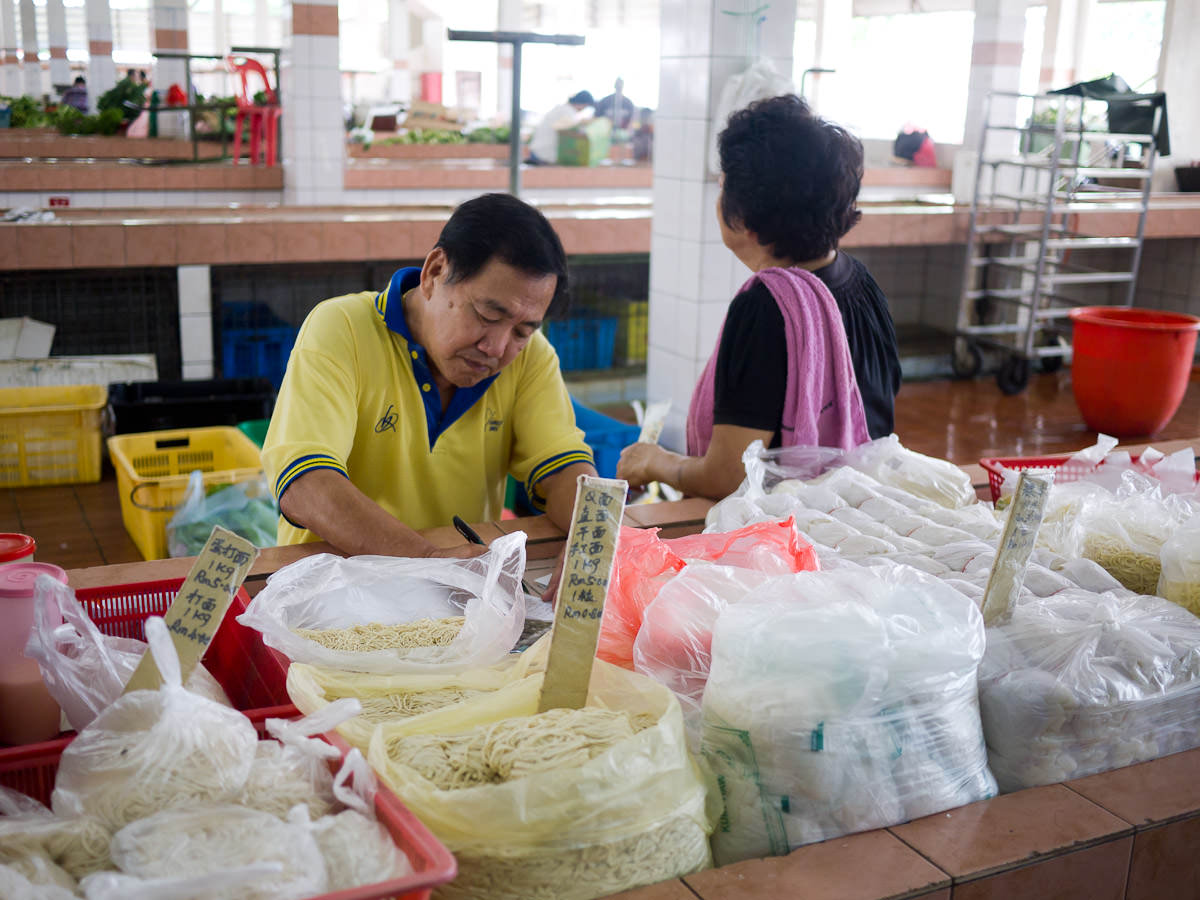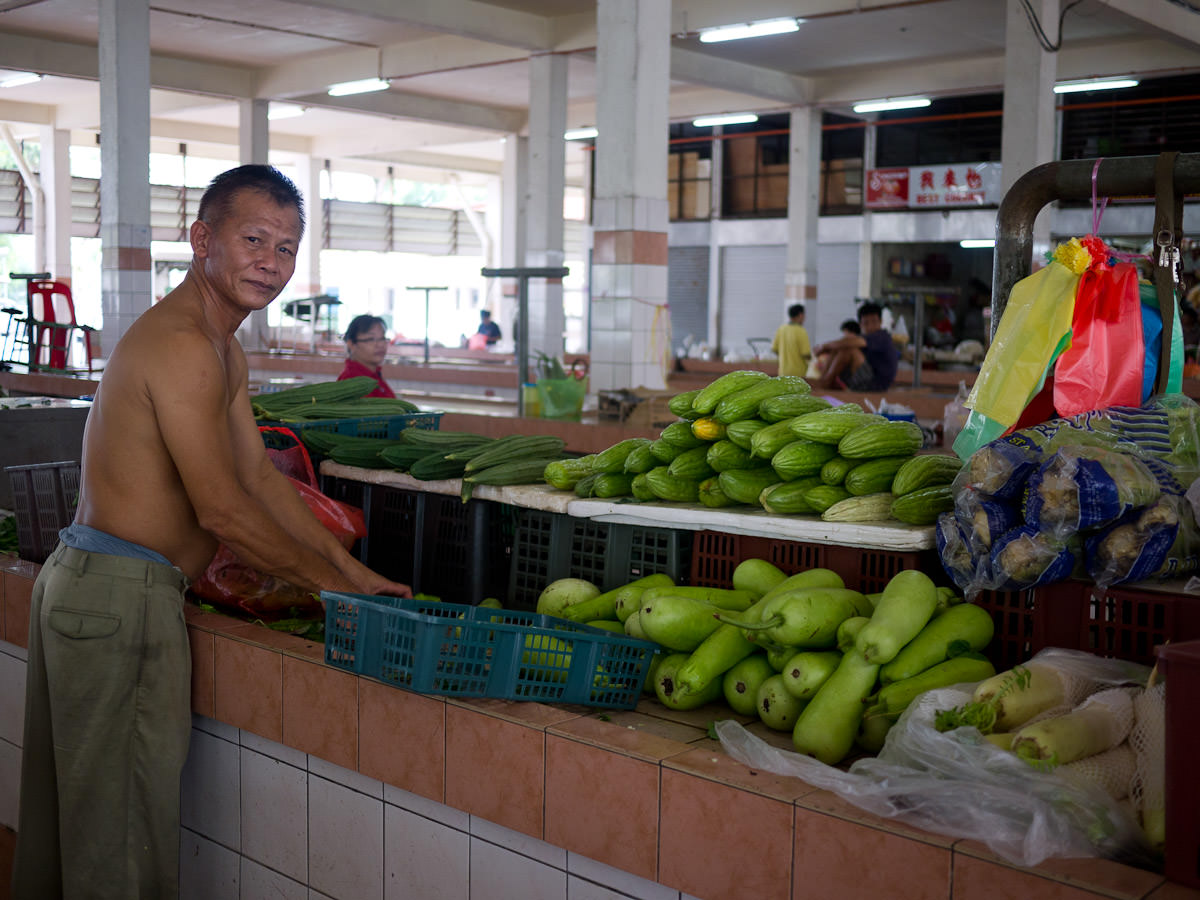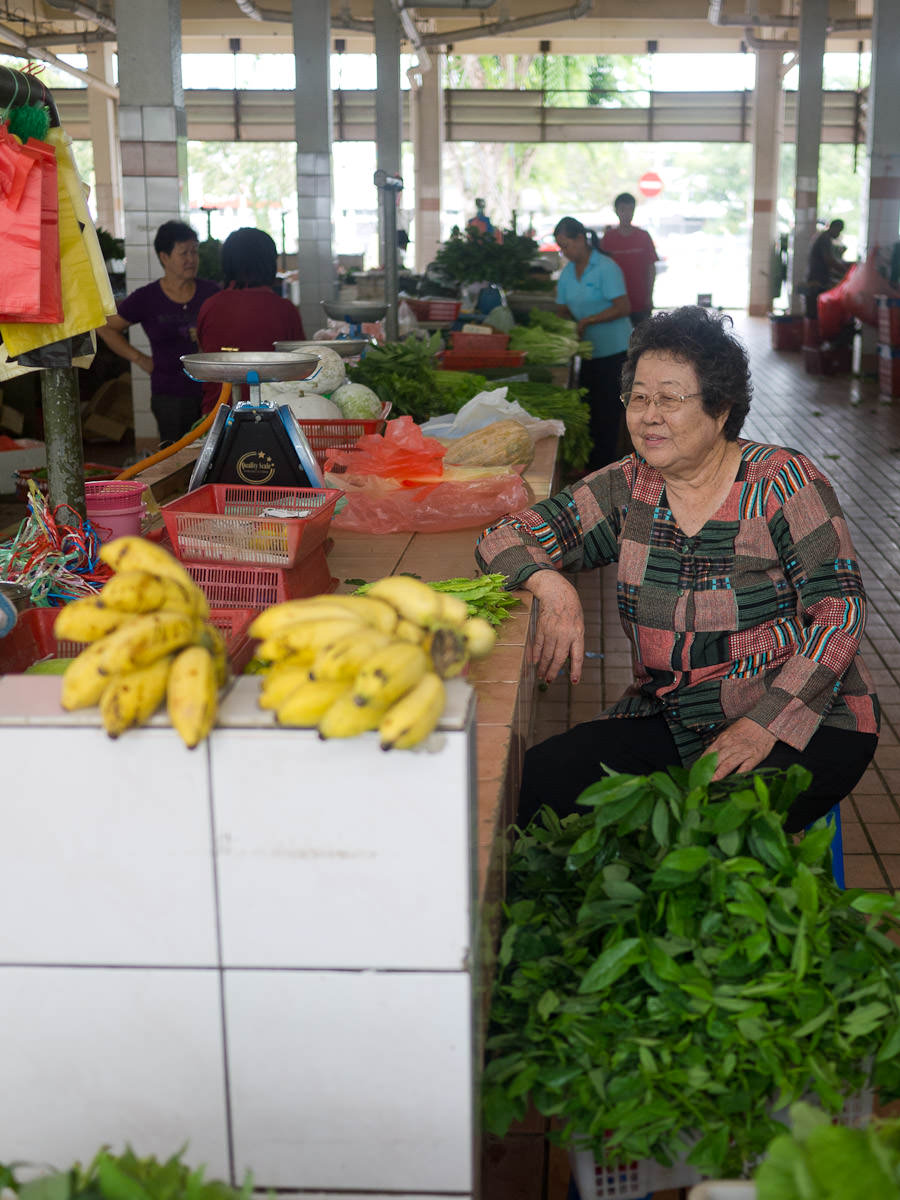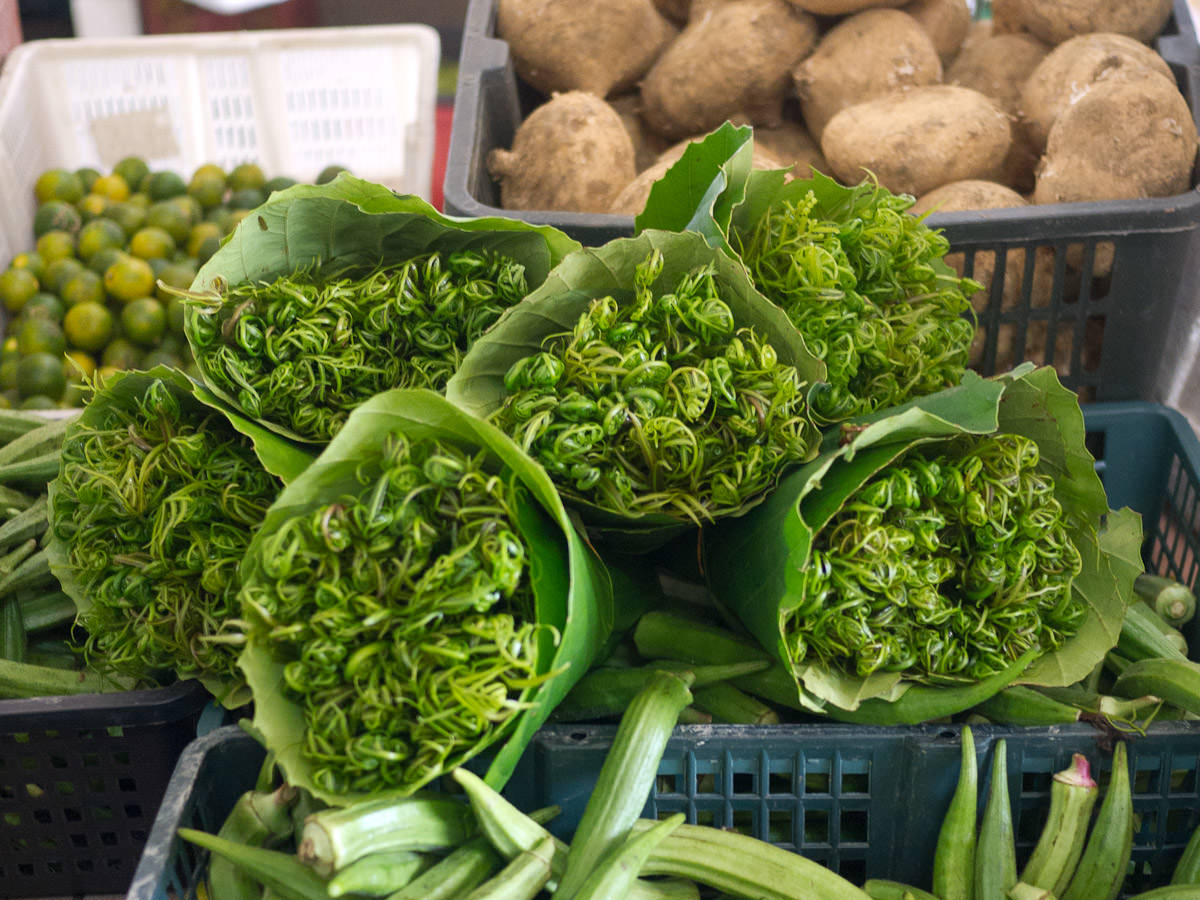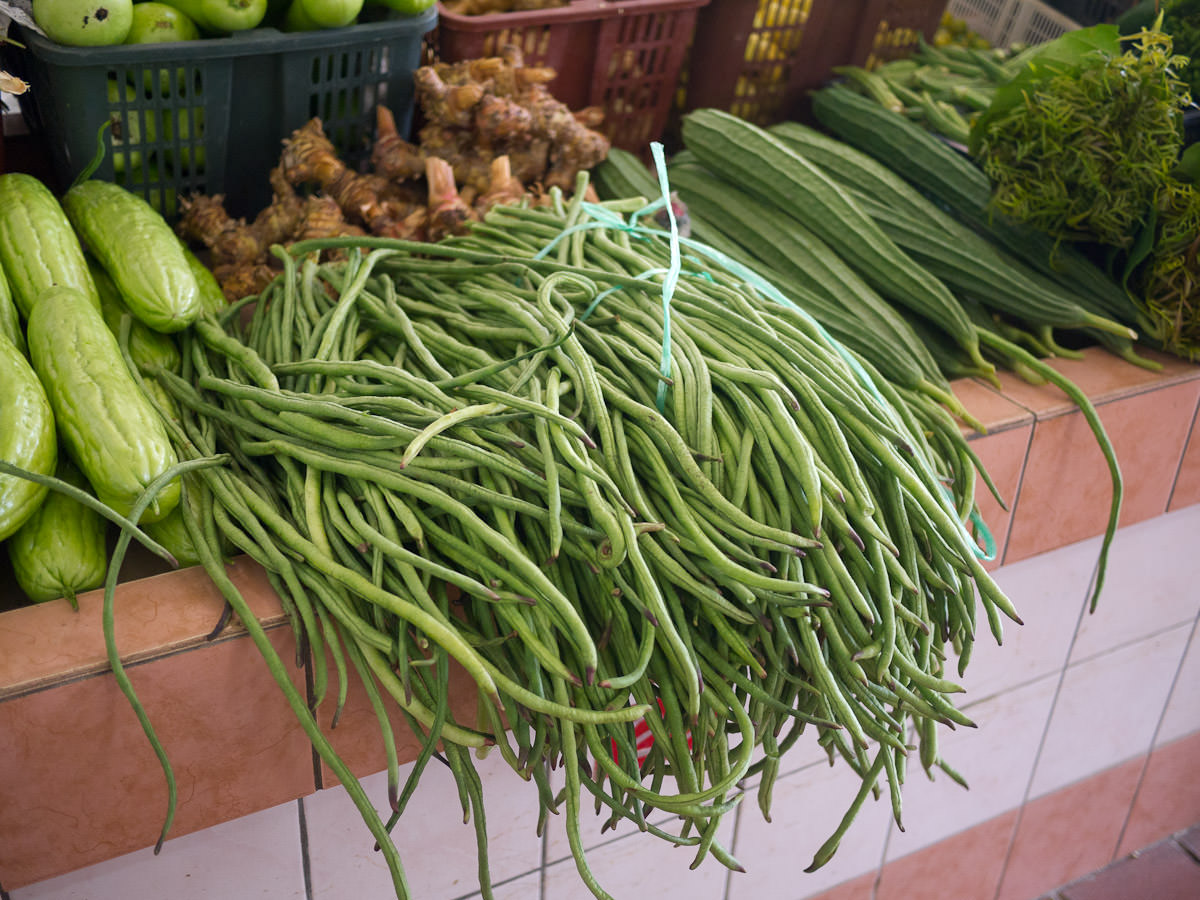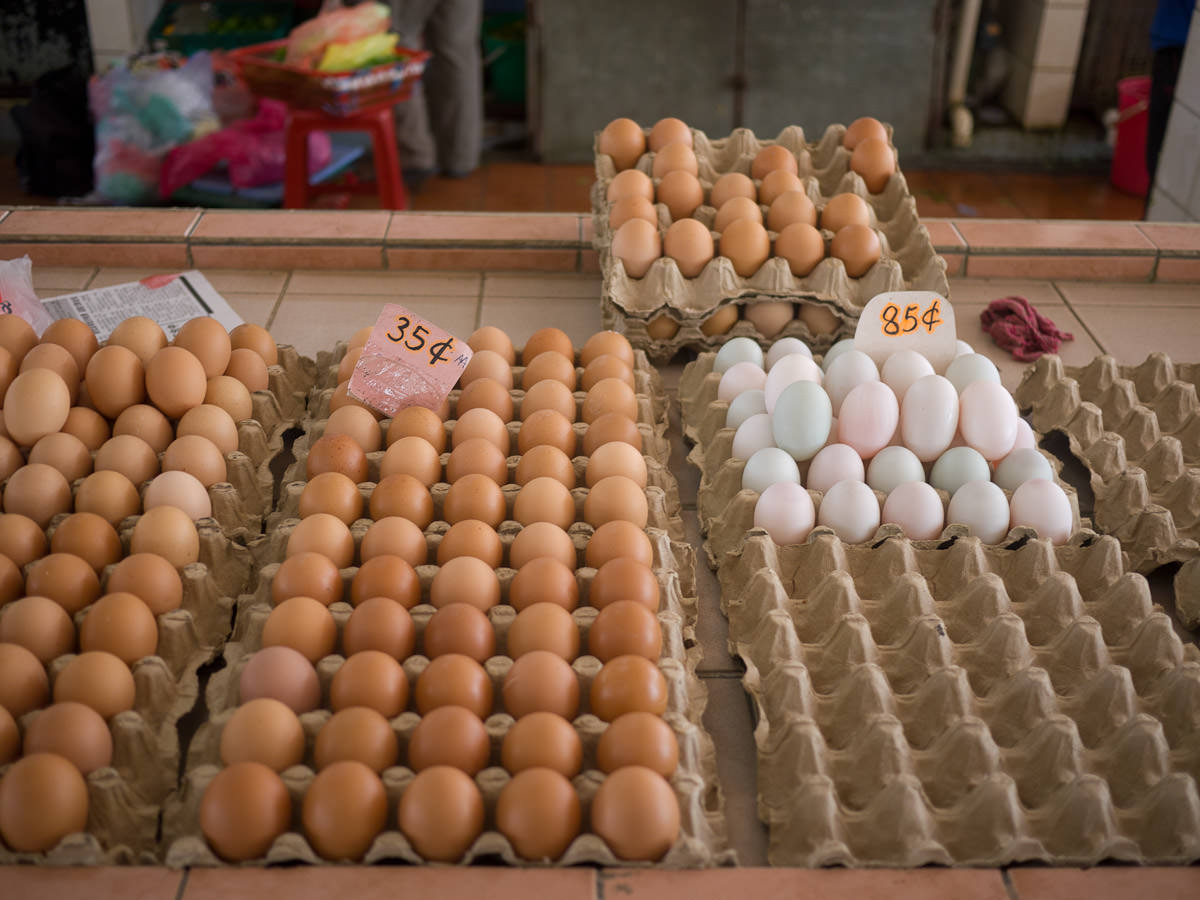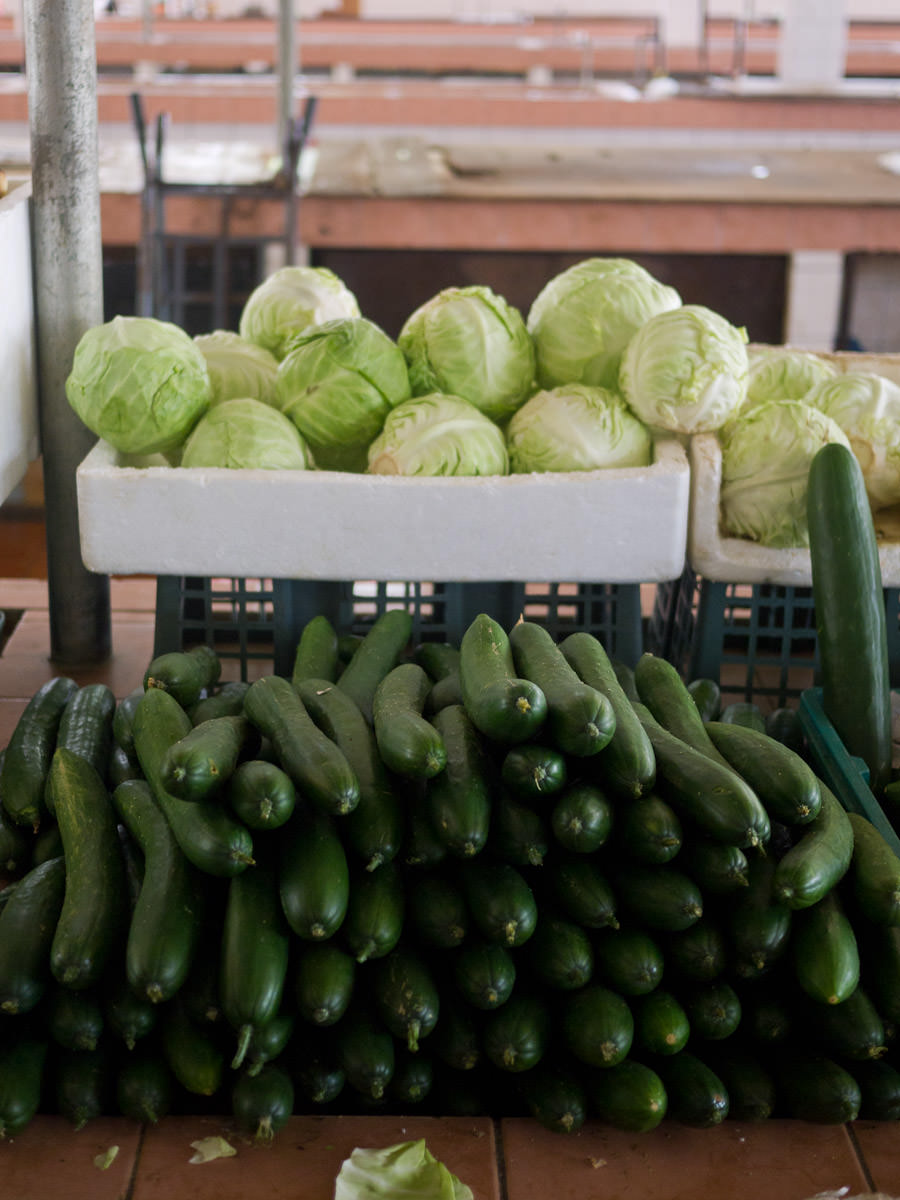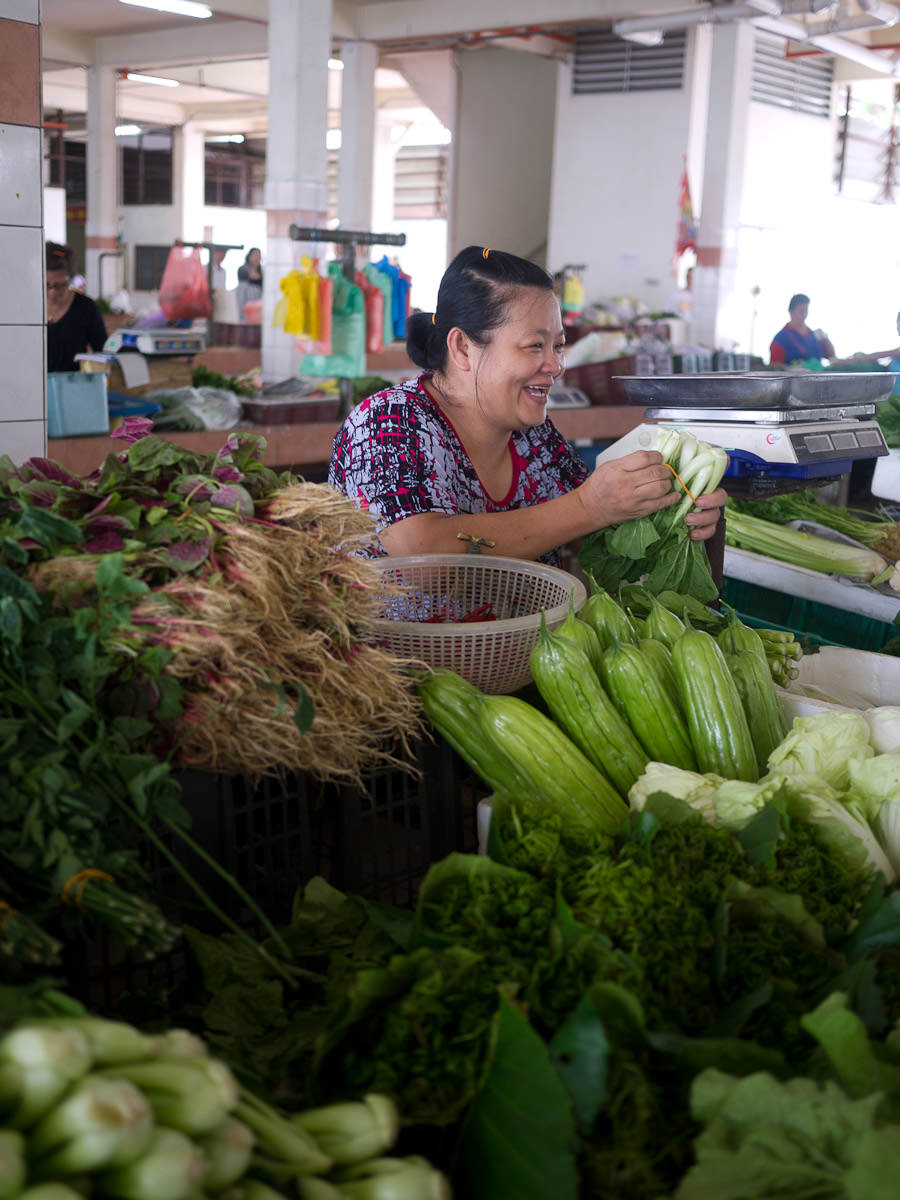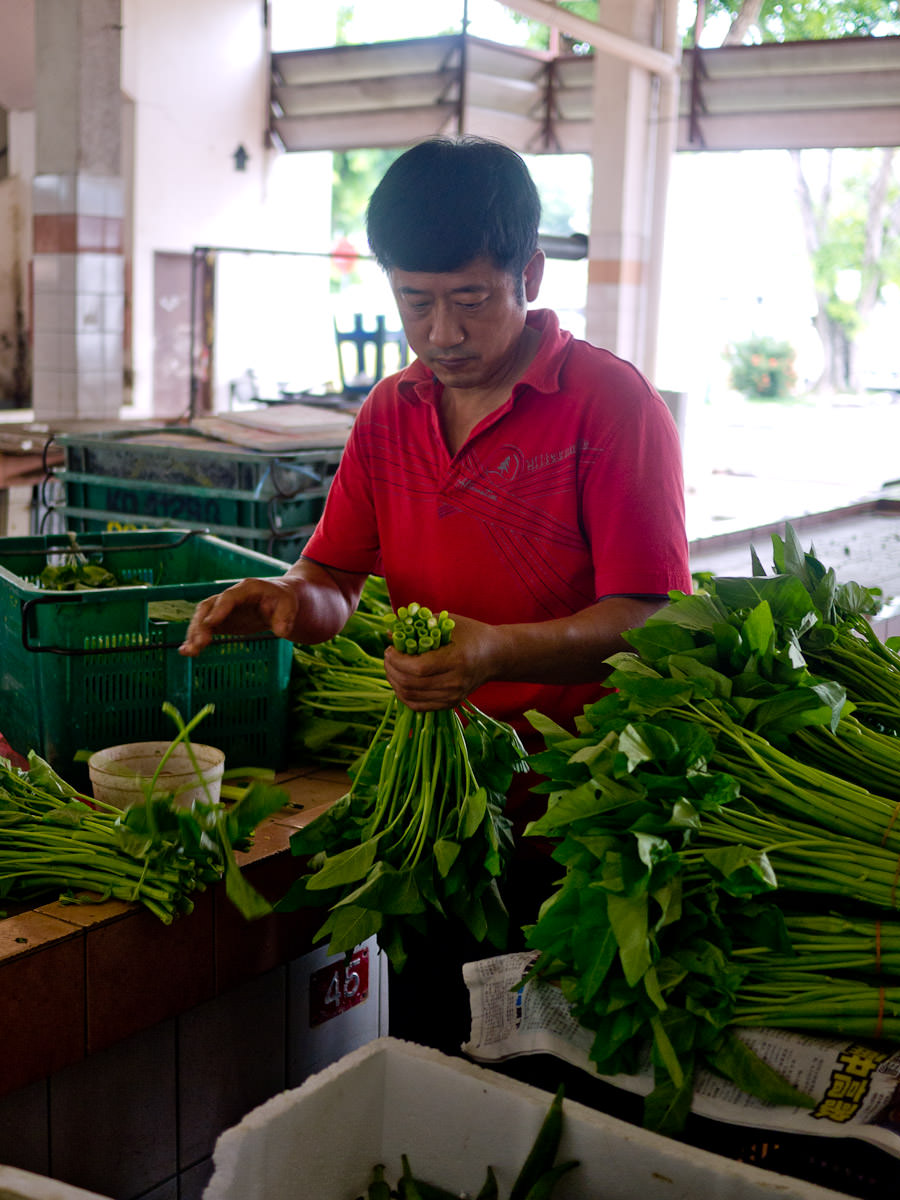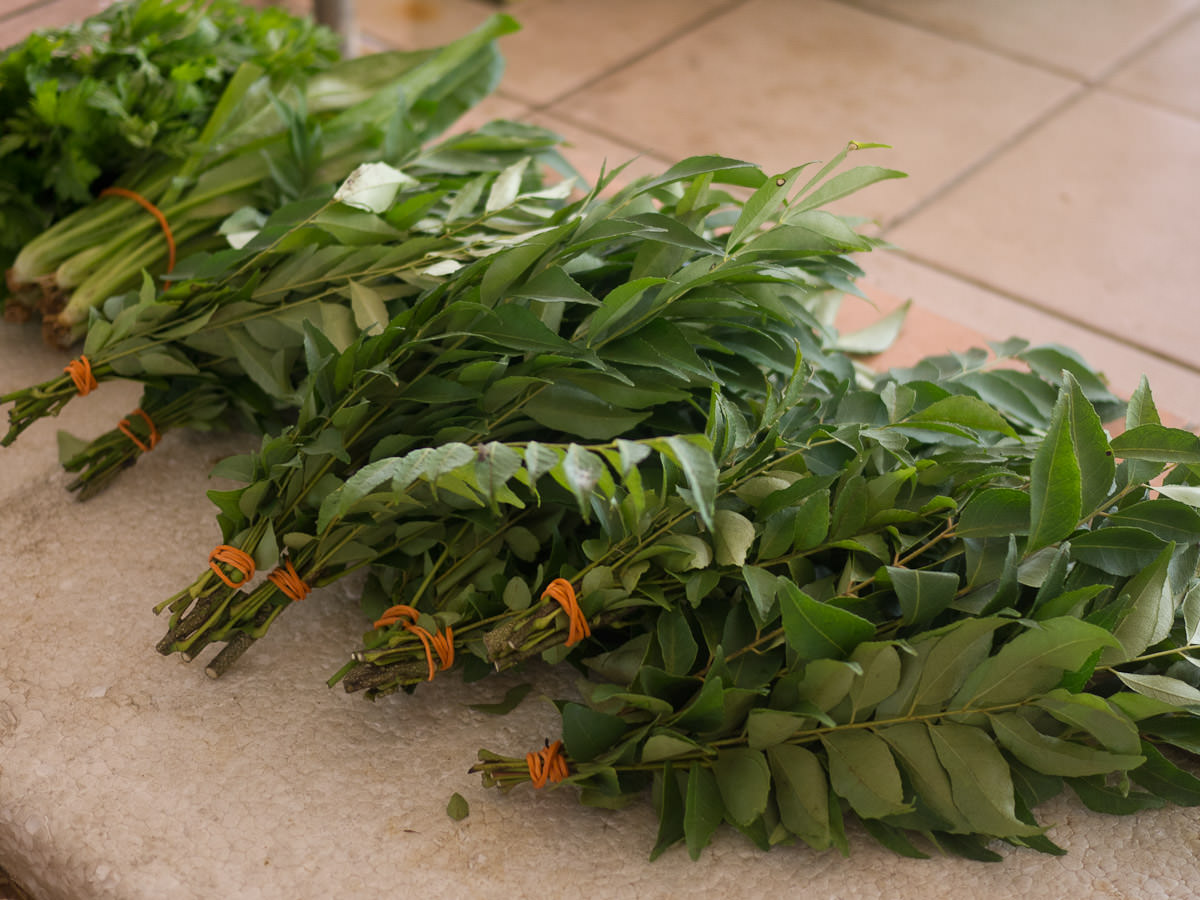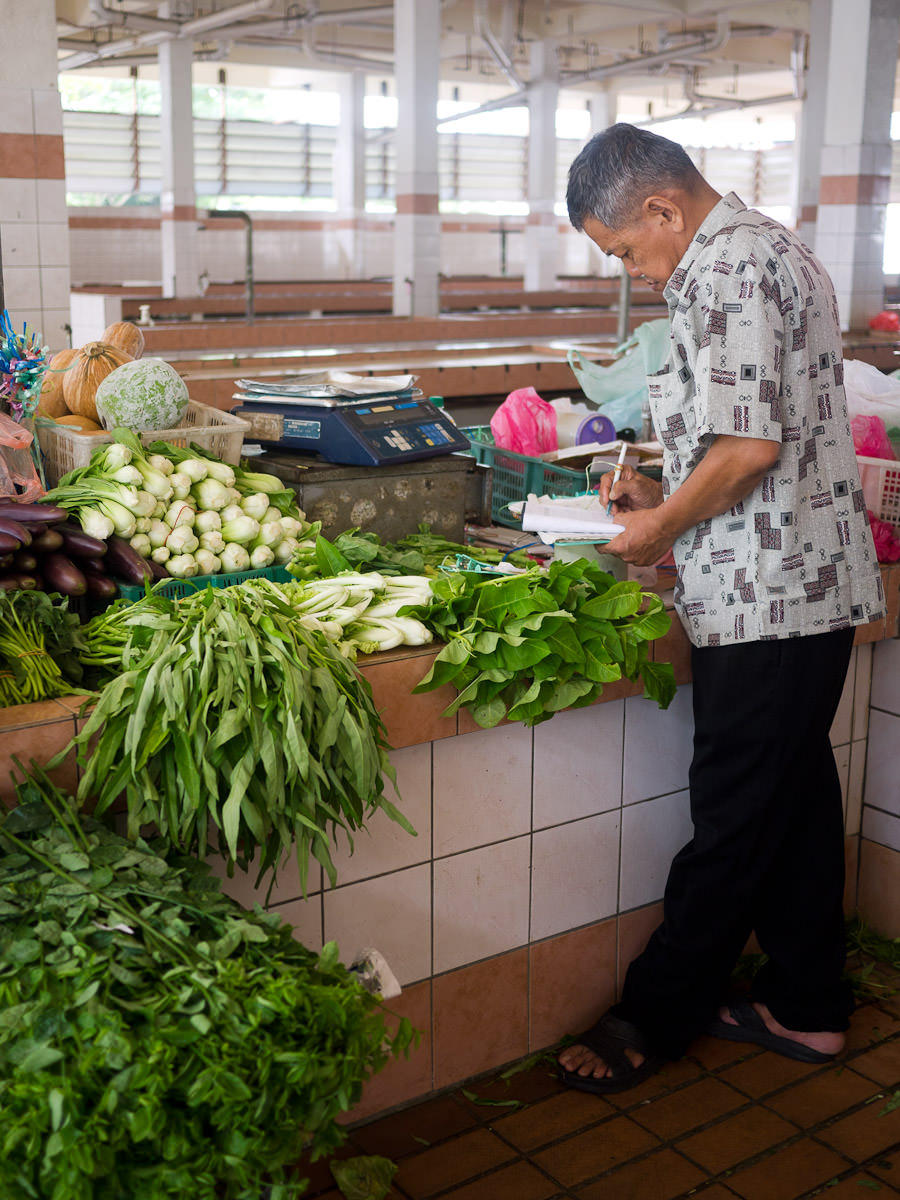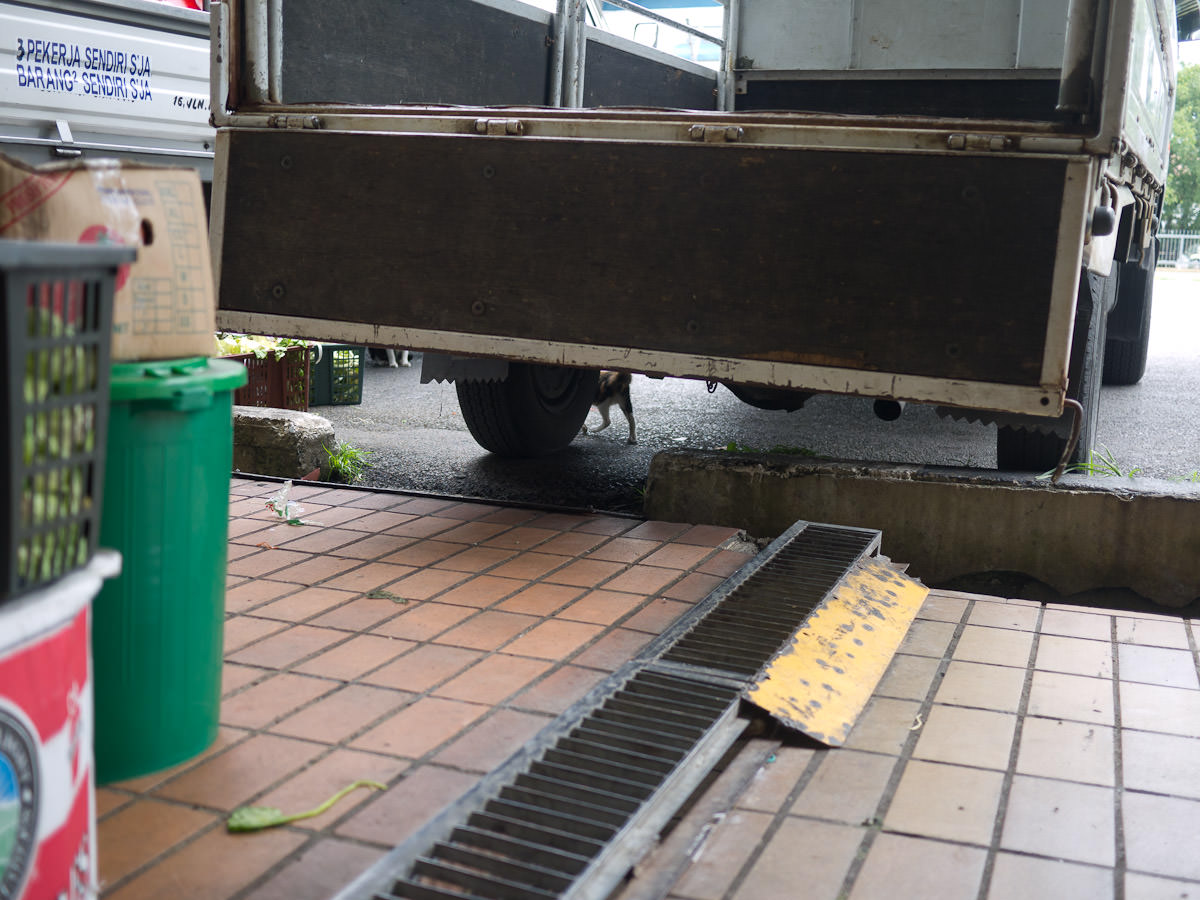Petanak Wet Market, Kuching
On our second morning in Kuching, we visit Petanak Market, a wet market with stallholders and clientele that are mostly Chinese.
As a child in Malaysia, I used to go with my mum to markets early in the morning before school. I didn’t like the overpowering odour of raw pork and chicken, the blood-splattered tiles, nor the dangerously slippery wet fishy floor. Those memories come rushing back to me at Petanak Market. But now, as adult who loves to take photographs and share my pictures with others, I’m really excited to be here. I want to photograph everything I see… the produce, the people and all the activity. I could stay here for hours.
Our MATRADE hosts and guide Joseph tell the market people that our group is from Australia. The stallholders are very good-natured about us observing their every move, checking out their produce and taking lots of photographs. The market’s regular customers stare but otherwise go about their business.
As we gather around the first fish stall and point our cameras at this woman, her friends at the adjacent stalls call out and tease her: “Smile, you’re a big star now!” She grins and giggles.
I recognise only some of the fish species, but they look so fresh, all glistening, shiny and plump. Feel free to help me name the fish species if you recognise any!
There are also dried fish for sale.
At every fish stall there is a collection of recycled plastic ice cream tubs, buckets and strainers, each used for different steps of the fish and shellfish cleaning process. Everyone has at least one slimy and well used heavy wooden chopping block.
I see lots of these little yellow-tinged fish and can’t help imagining how tasty they would be, coated in seasoned flour and crispy-fried.
A woman slices fish open to extract the sac of roe from within.
These are pomfret. We used to eat fried pomfret as kids in Malaysia.
Next to the fish stalls are a number of poultry stalls. I’m reluctant to venture too close to the poultry as there’s a current avian flu warning for South East Asian countries including Malaysia, but I can’t help smiling at the chicken man, grinning as he cleans his chickens.
I smell the pork market before I see it. A large sign hangs from the ceiling listing porky parts including organs such as kidney, heart and liver. And head skin.
Warning: The pork butchery description and images (including raw meat/various pig parts) may be confronting to some. If you don’t want to see them, skip to the fruit and vegetables.
Joseph tells us we’ve missed the early morning rush. I’m secretly a little disappointed we’ve missed seeing the butchery at its busiest but I’m also glad to have missed an even more stifling and intense concentration of the raw pork smell that hangs in the air here.
Some of the stalls are empty, though the evidence of recent butchery remains.
Hanging from hooks or piled on wooden planks and cardboard stained with blood and raw meat juices are ribs, trotters, jaws (with teeth intact) and slabs of meat, fat, skin and bone. Wherever you walk, there are pink bits of flesh and fat on the floor. Amidst the warm and humid conditions, refrigeration isn’t apparent. It’s not a place for the faint-hearted.
I peek through the hanging slabs of pork to photograph this butcher as he cuts away blobs of fat from pieces of pork fillet.
A man sharpens knives at an empty stall. On the far wall behind him, there’s a distinctly visible blood splat.
In the next section of Petanak Market there are grocery shops selling vegetables and fruits, bottled sauces, tinned goods and all kinds of things in shiny packets.
There are many kinds of dried shrimps and anchovies for sale.
We get a taste of smoked shrimps.
Next to bags of little gem biscuits, chocolate creams, cream crackers and other biscuits, someone’s just eaten their lunch.
The shopkeepers stand proudly by their wares as we take photographs.
The shelves are full of bottles of sauce. Next to the fresh fruit are three different kinds of dried and pickled chilli vegetables and bottles of cincalok, made from fermented shrimp.
Next to the grocery shops, we watch a woman chopping coconuts in half, then separating the coconut flesh from the prickly hairy husks.
It’s hard work in a hot, dirty room. There are a lot of coconuts to get through. She works with strong arms and expert hands.
We’ve now reached the fresh fruit and vegetable part of the market.
We all recognise midin, brightly green and curly, sold in leaf-wrapped bundles.
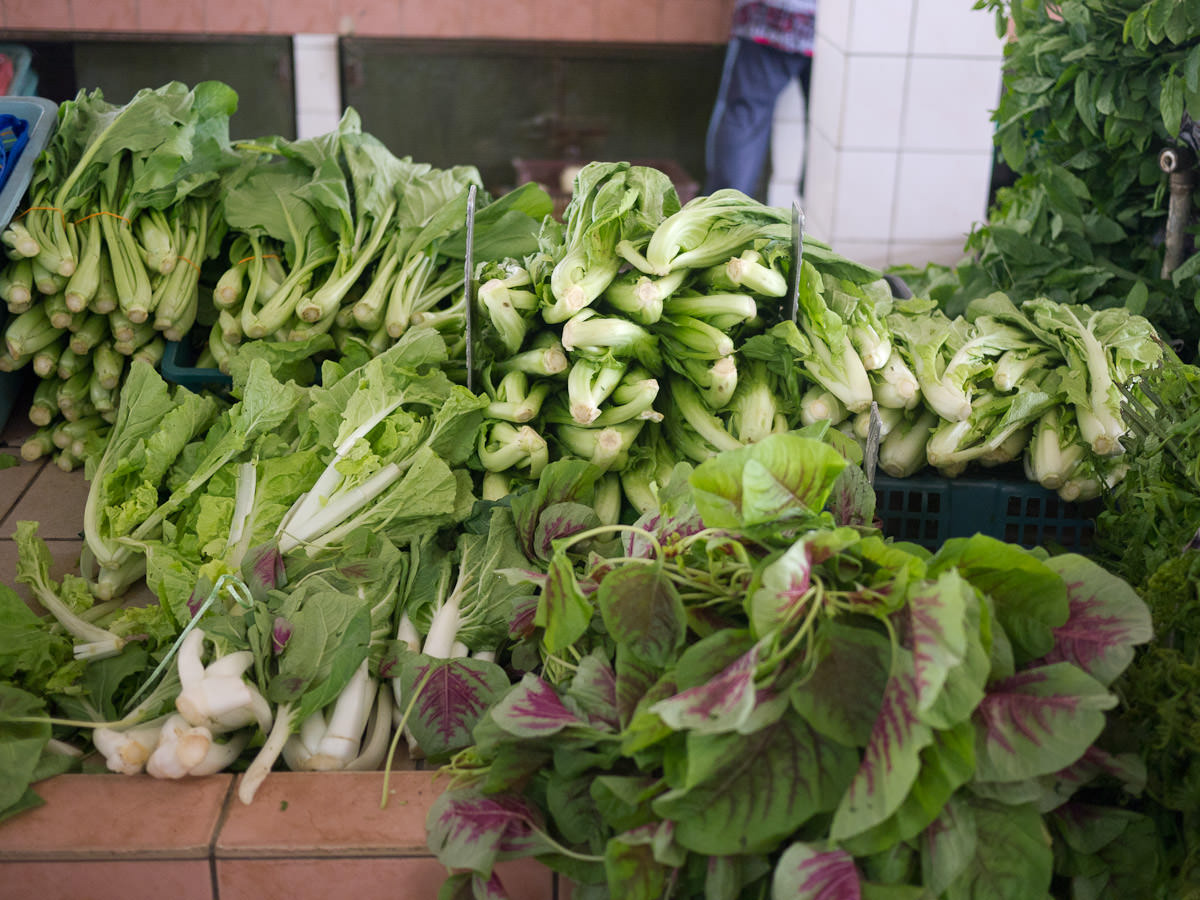
Green vegetables – the one with red in the leaves is known in Malaysia as “bayam” – some call it red spinach or Chinese spinach
Just before we leave, I catch a fleeting glimpse of my first kucing in Kuching. There are two of them hanging around the trucks. Can you see them both?
And although our trip to Petanak Market hasn’t included eating, I feel happy and energised as we get back on our bus, all with much filthier shoes than before.
We had breakfast back at the hotel before we went to the market – I’ll tell you about it in a future post. :)
TFP visited Kuching, Malaysia as a guest of Malaysia Kitchen, MATRADE and Tourism Malaysia.
Read the posts in my Kuching Trip 2011 series (in order):
- Da-Light Food Court
- Fairy Cave, Wind Cave, roadside fruit stall and durian
- Kuching Waterfront and Top Spot Food Court
- Petanak Wet Market – this post
- Swee Kang Ais Kacang
More Kuching posts are on the way!
Where is Kuching, Malaysia?
